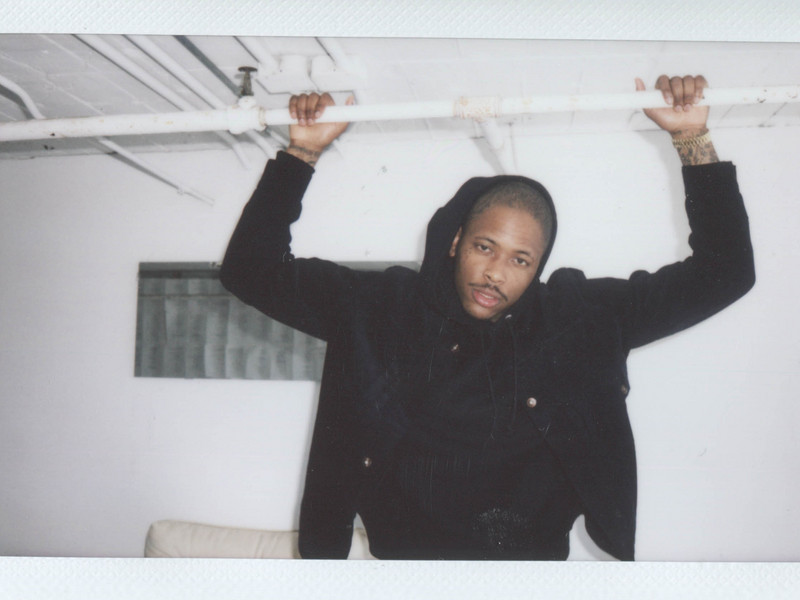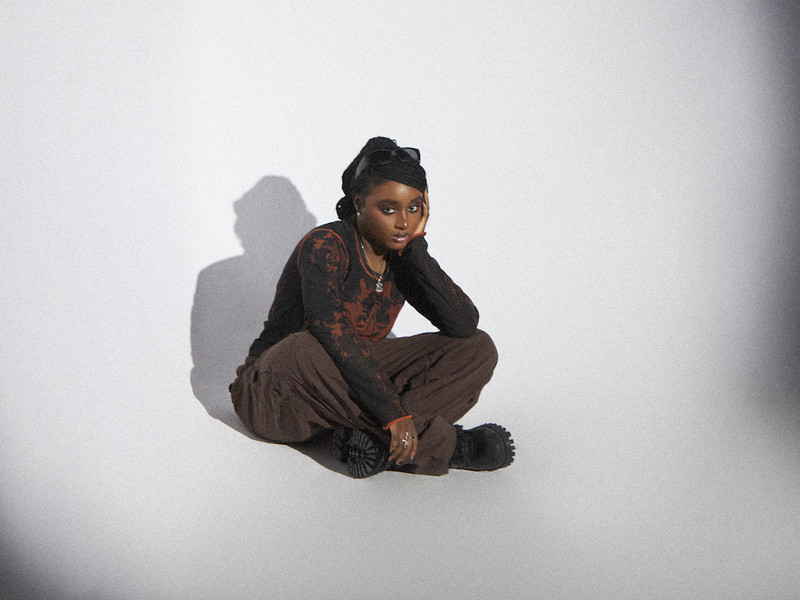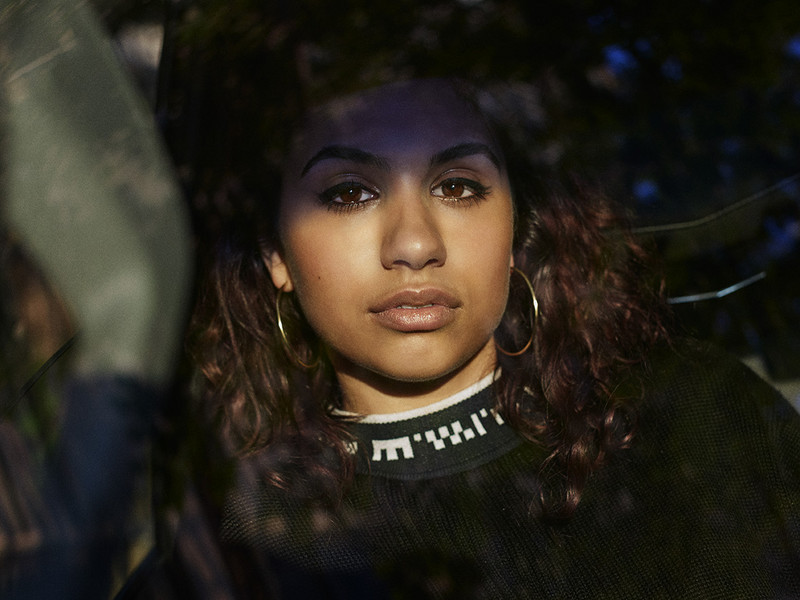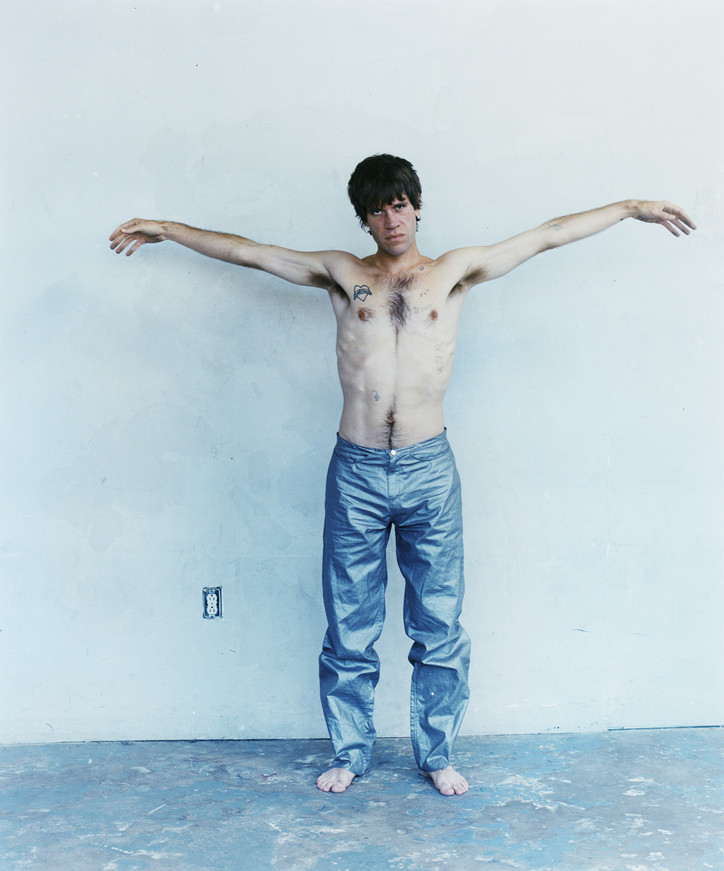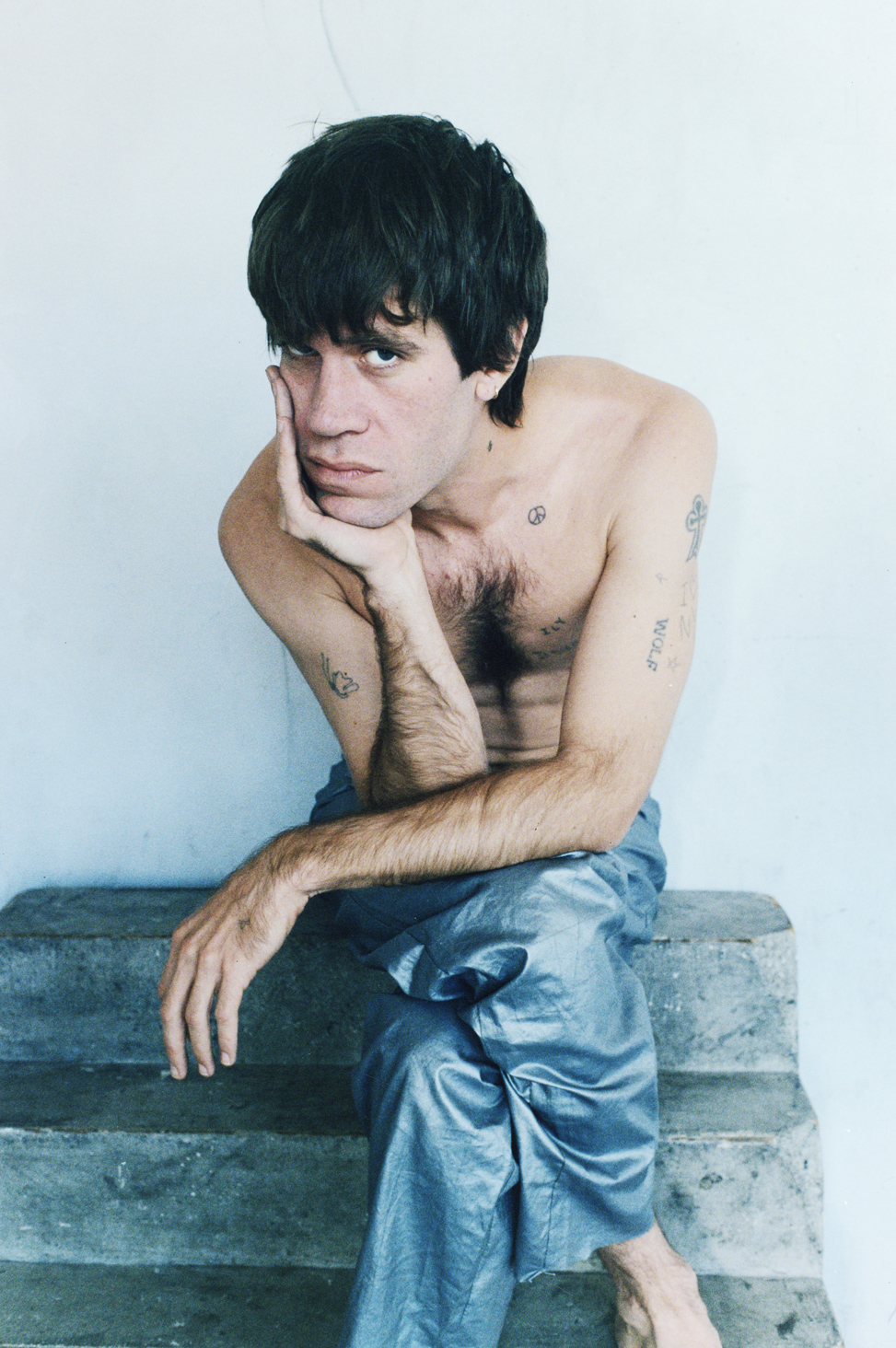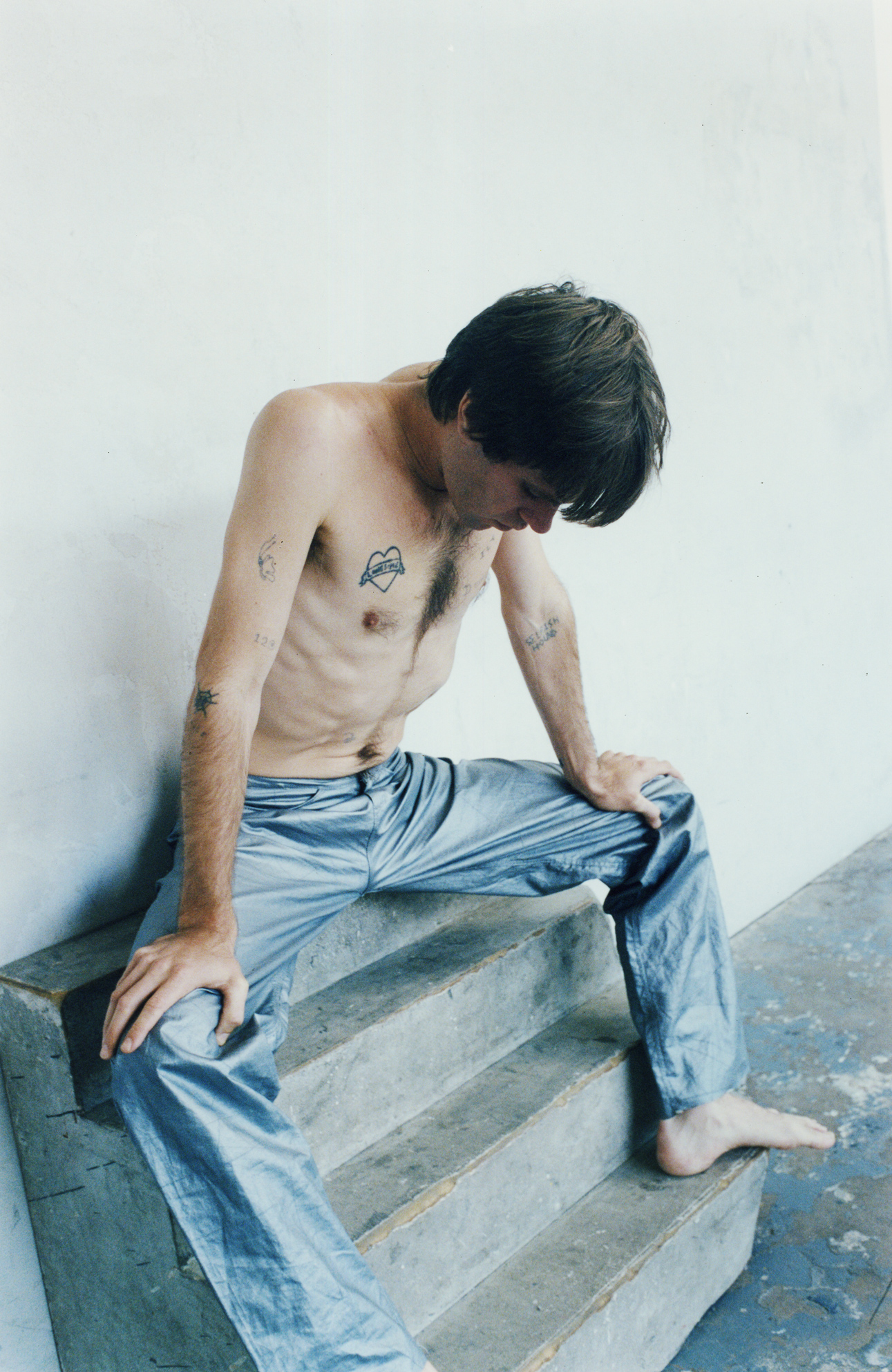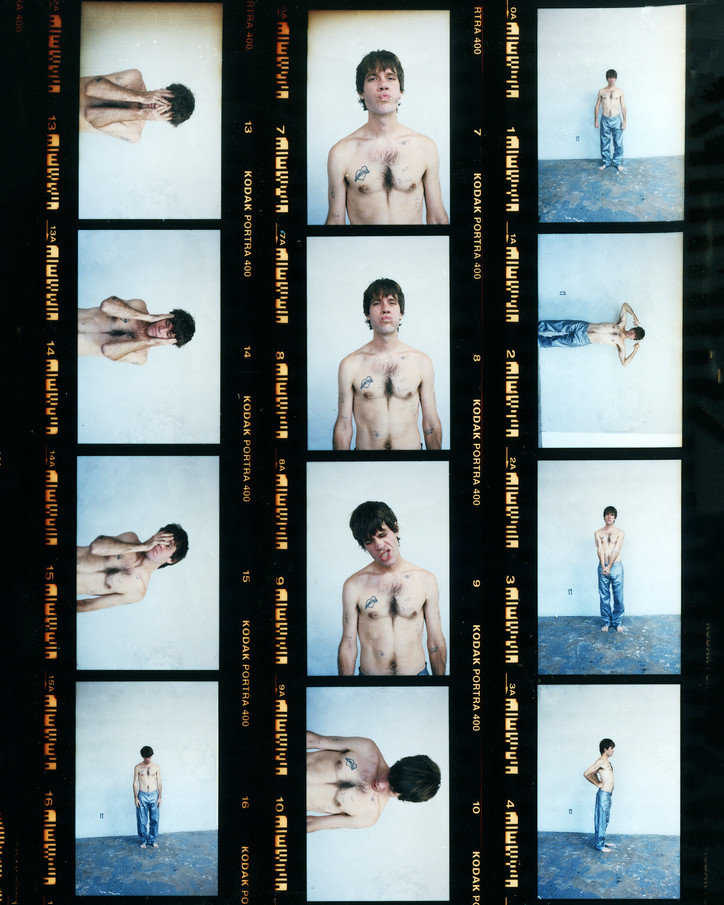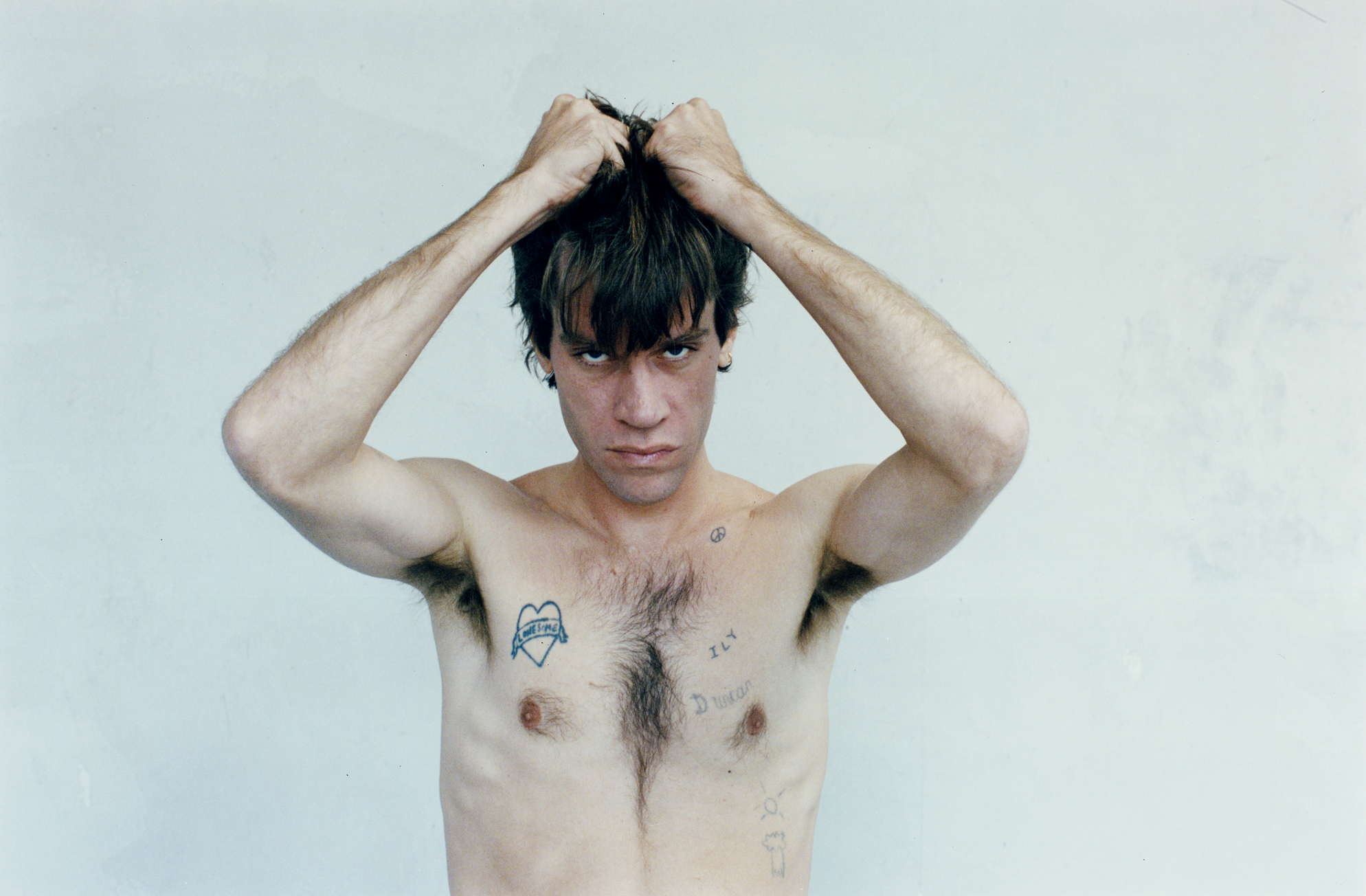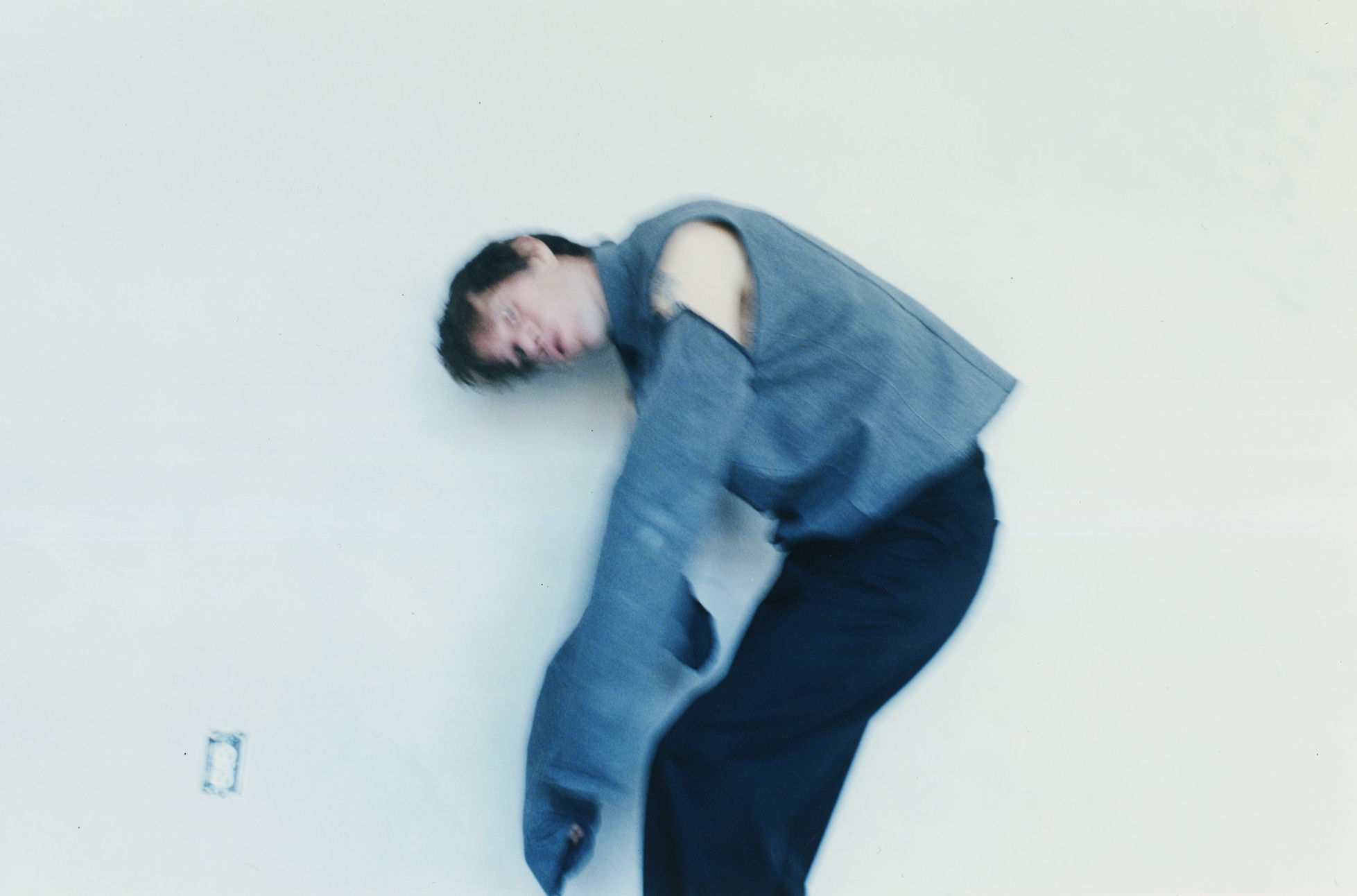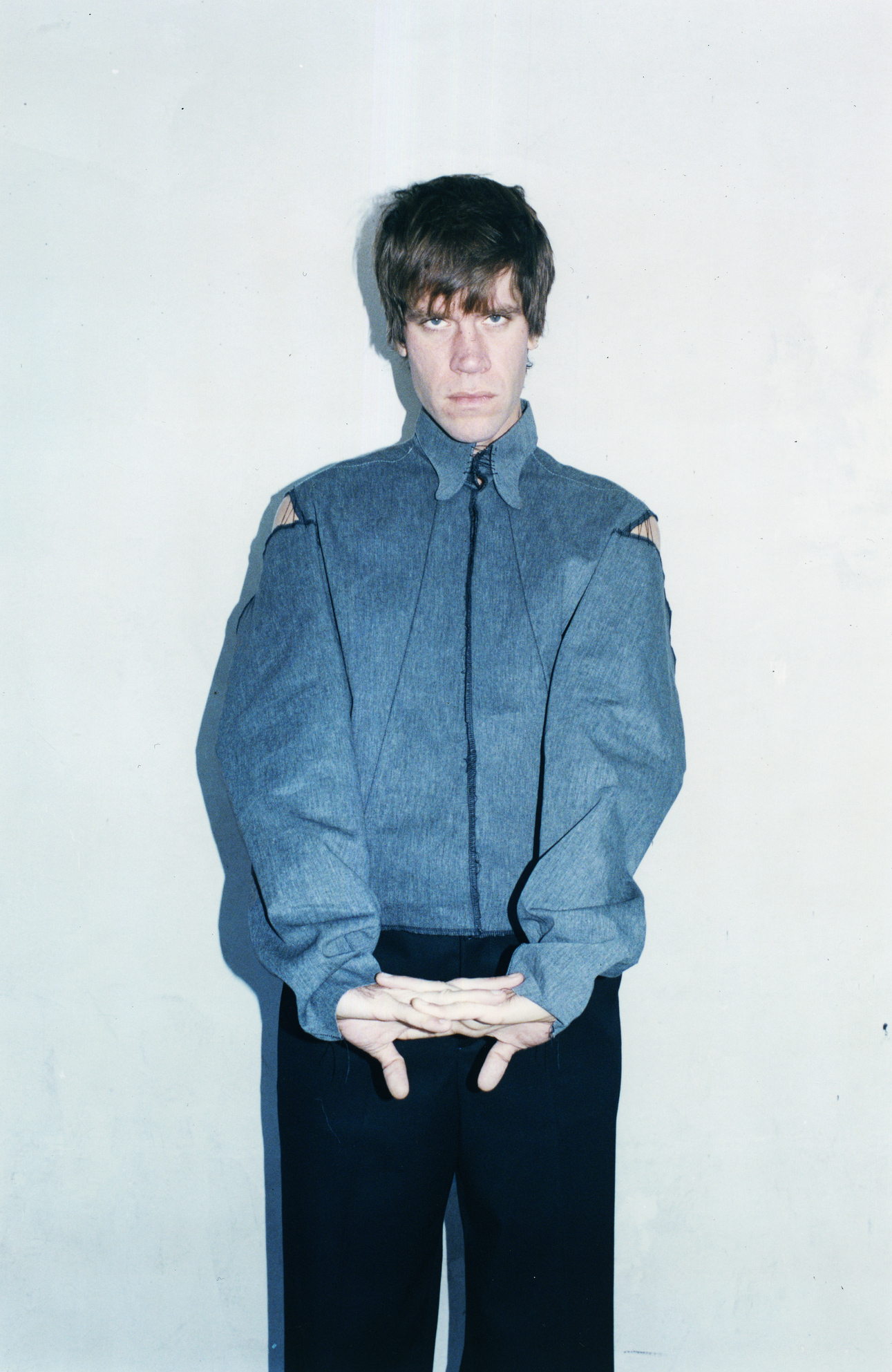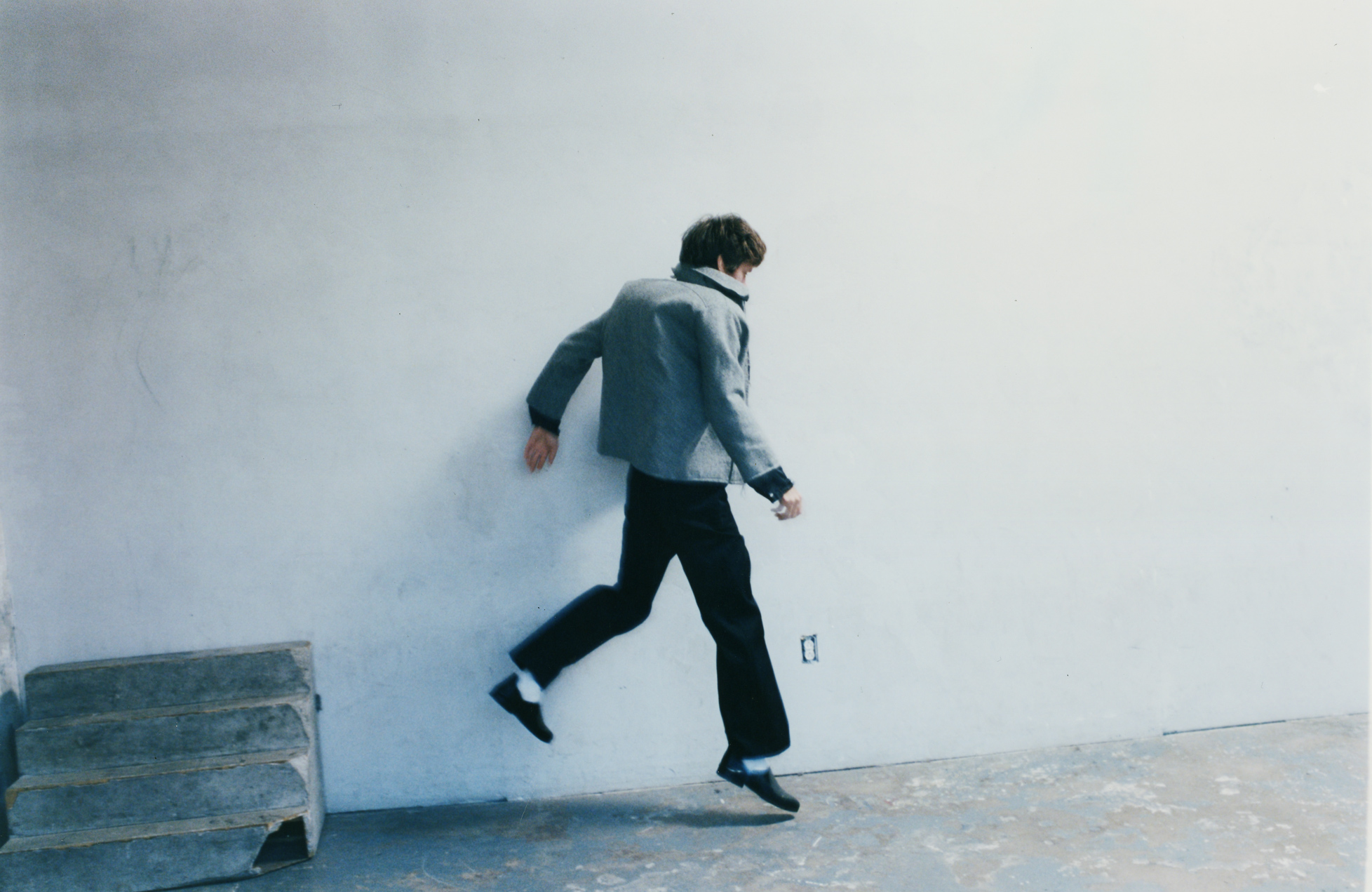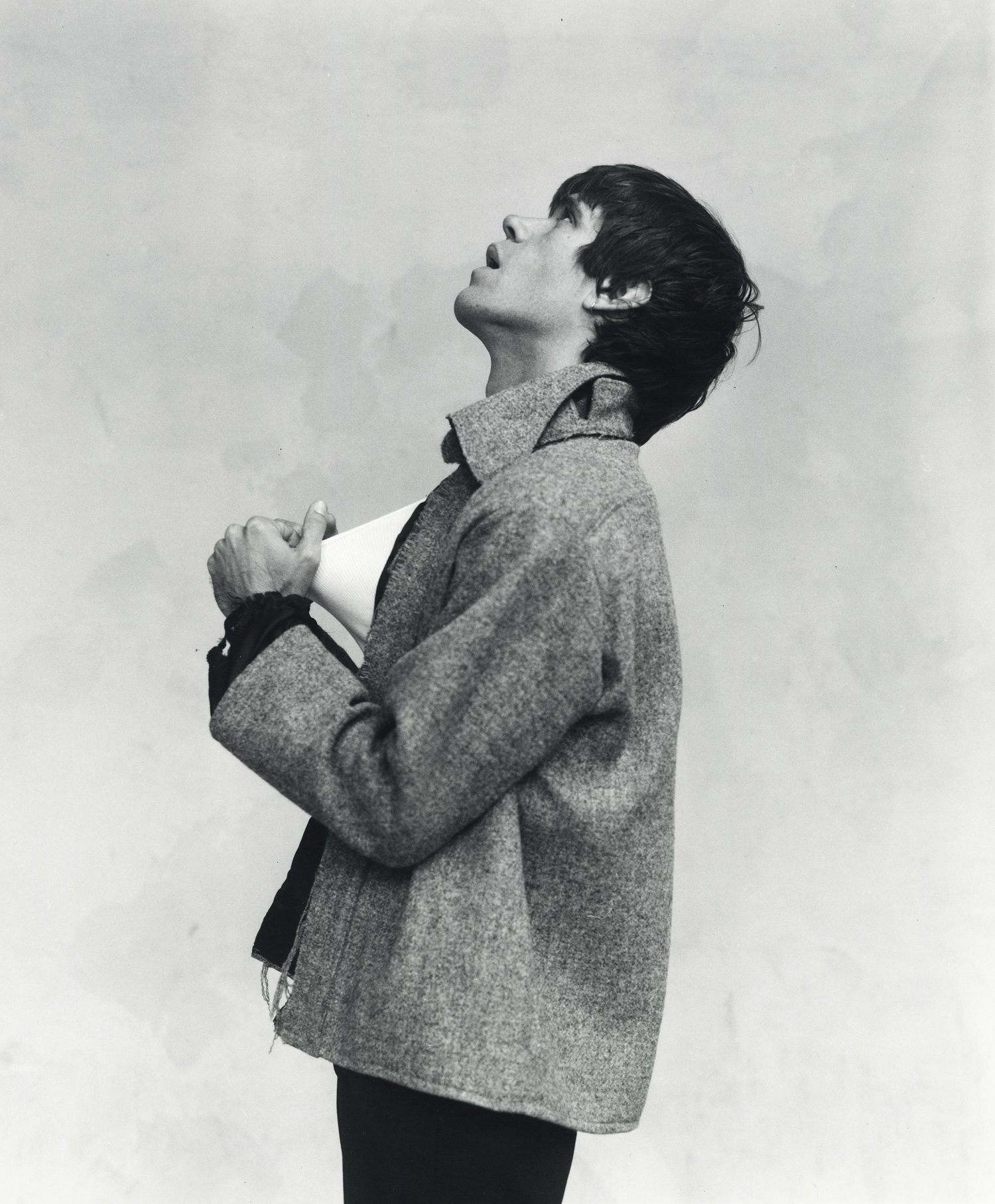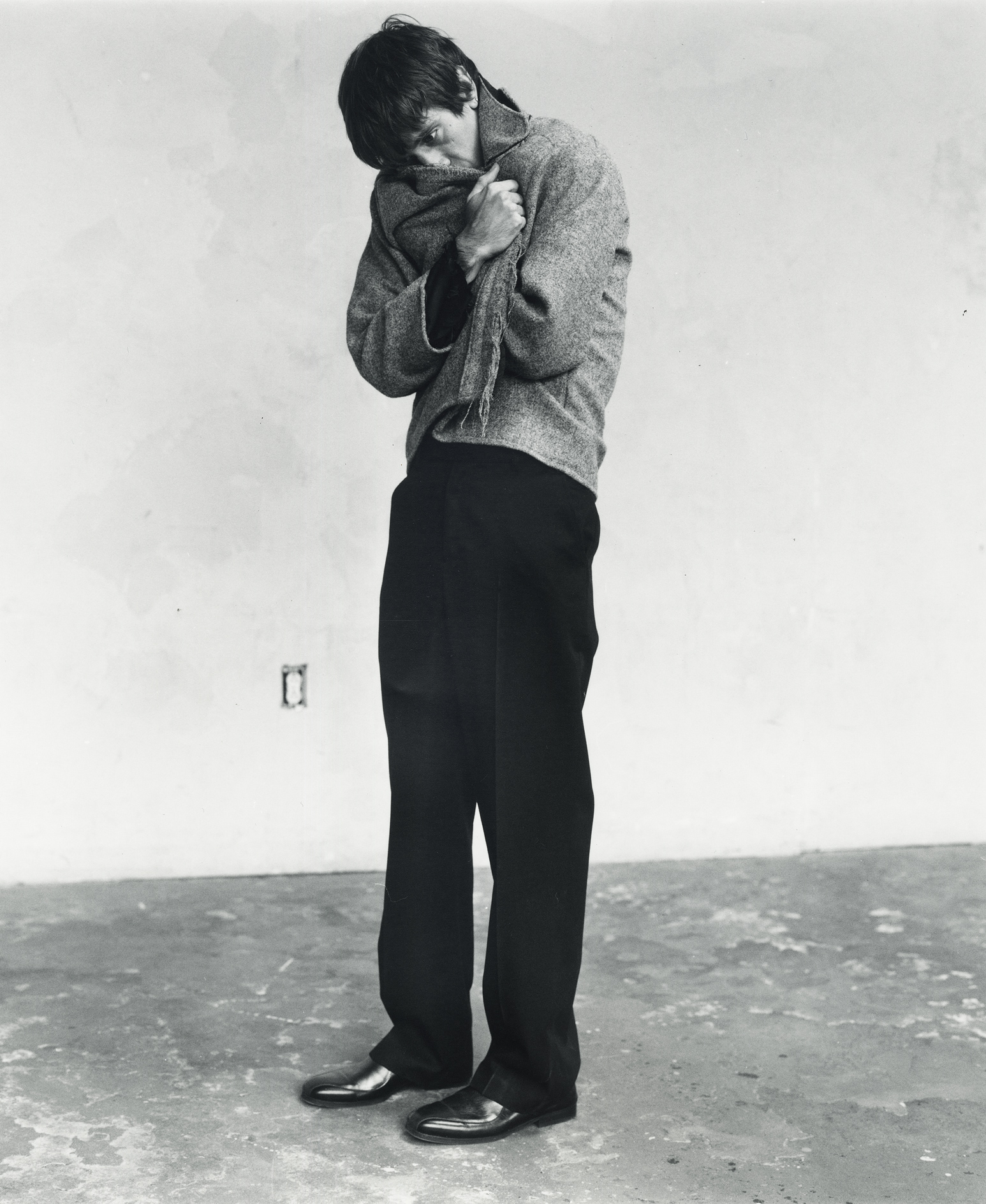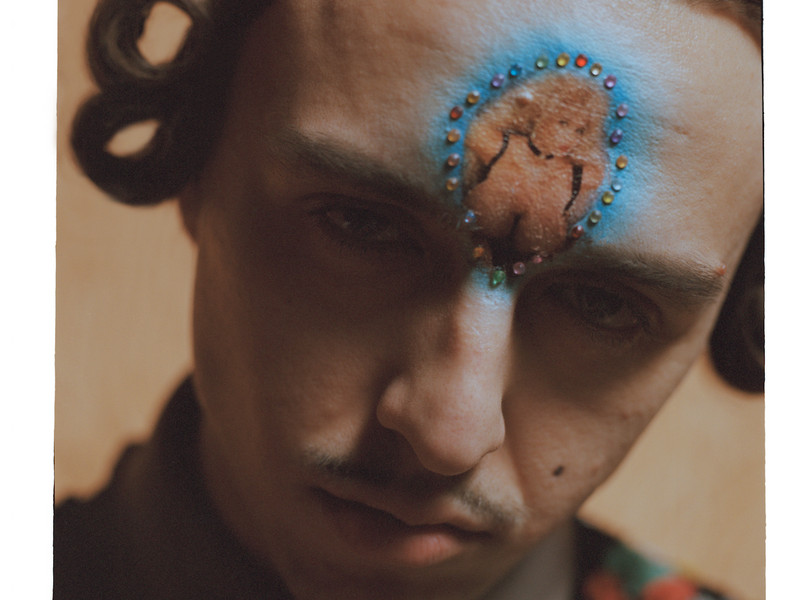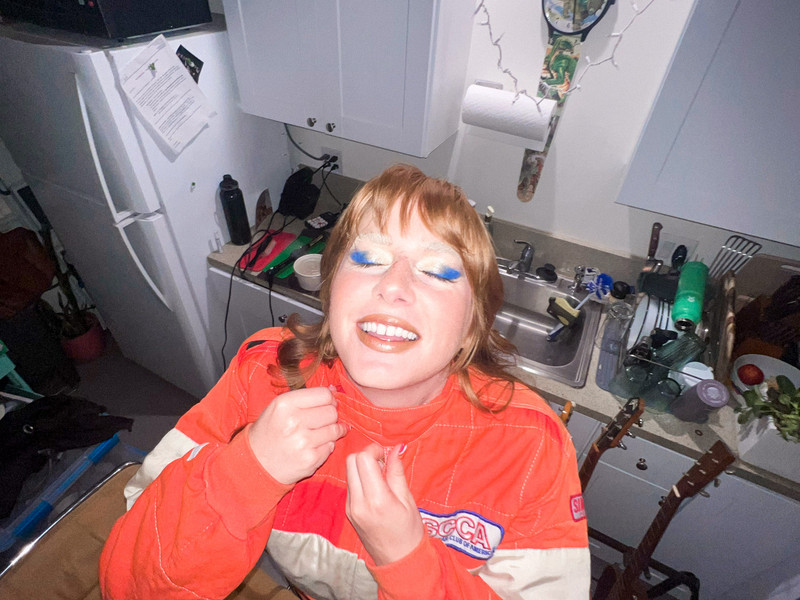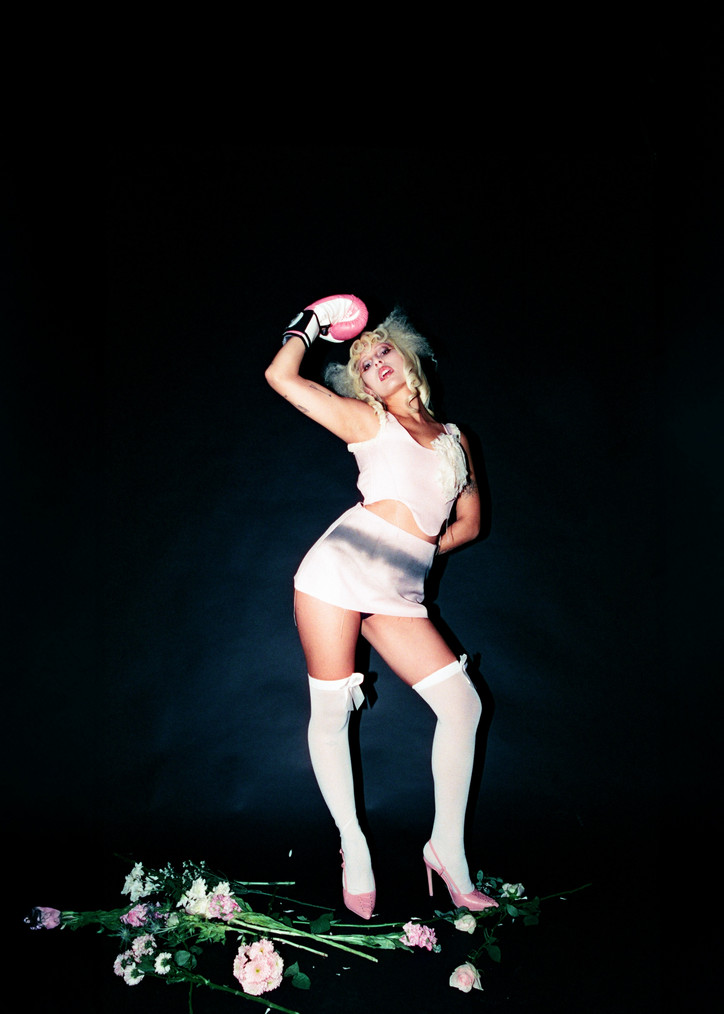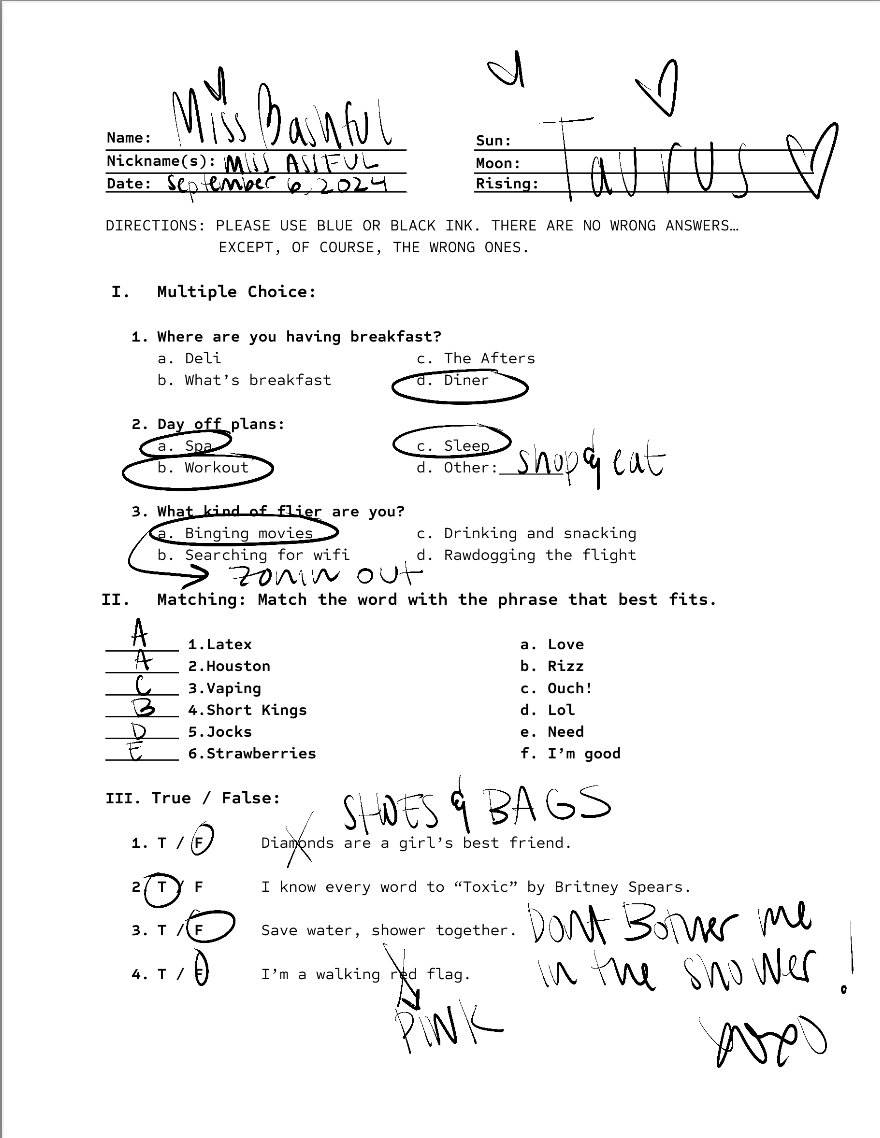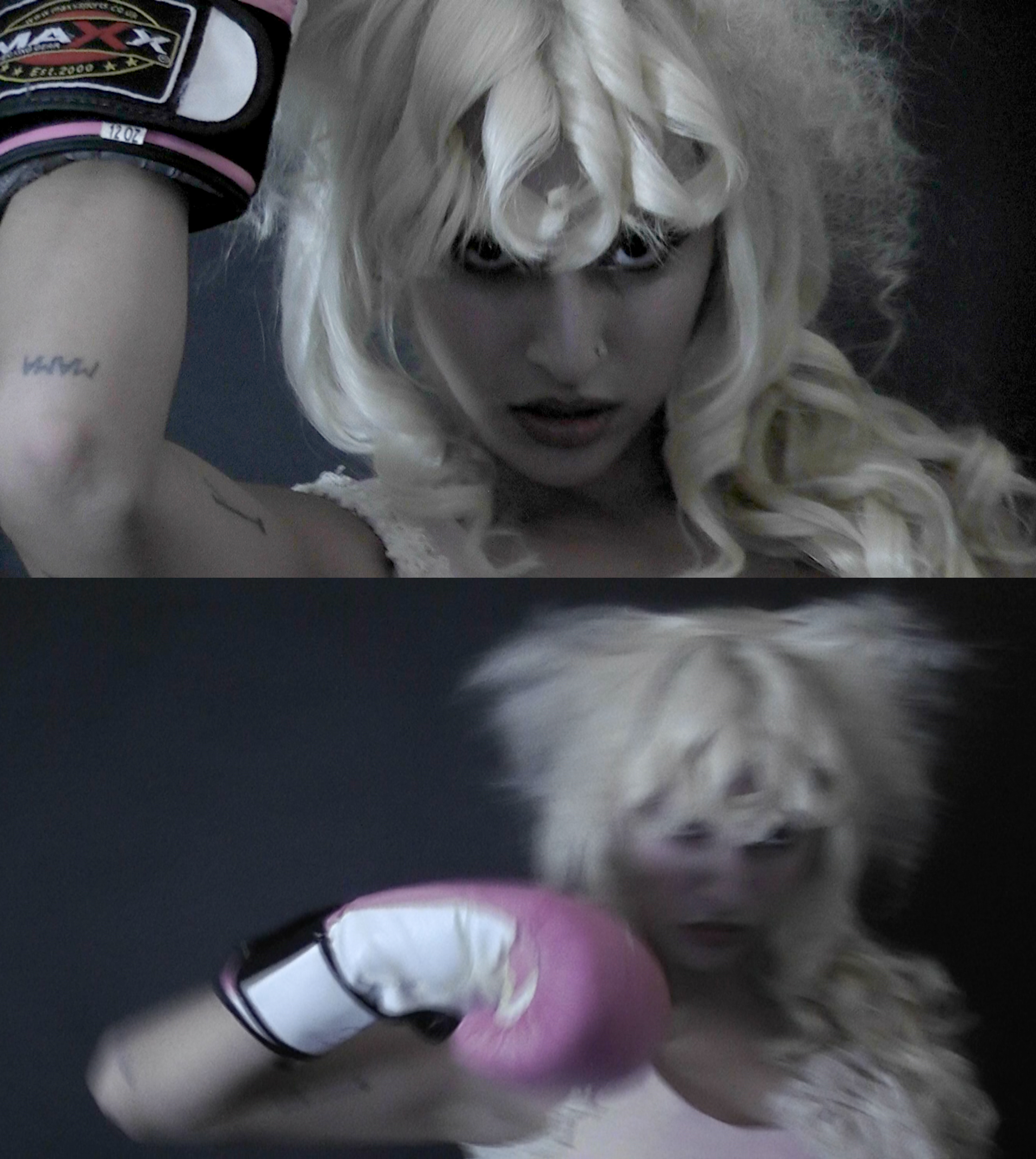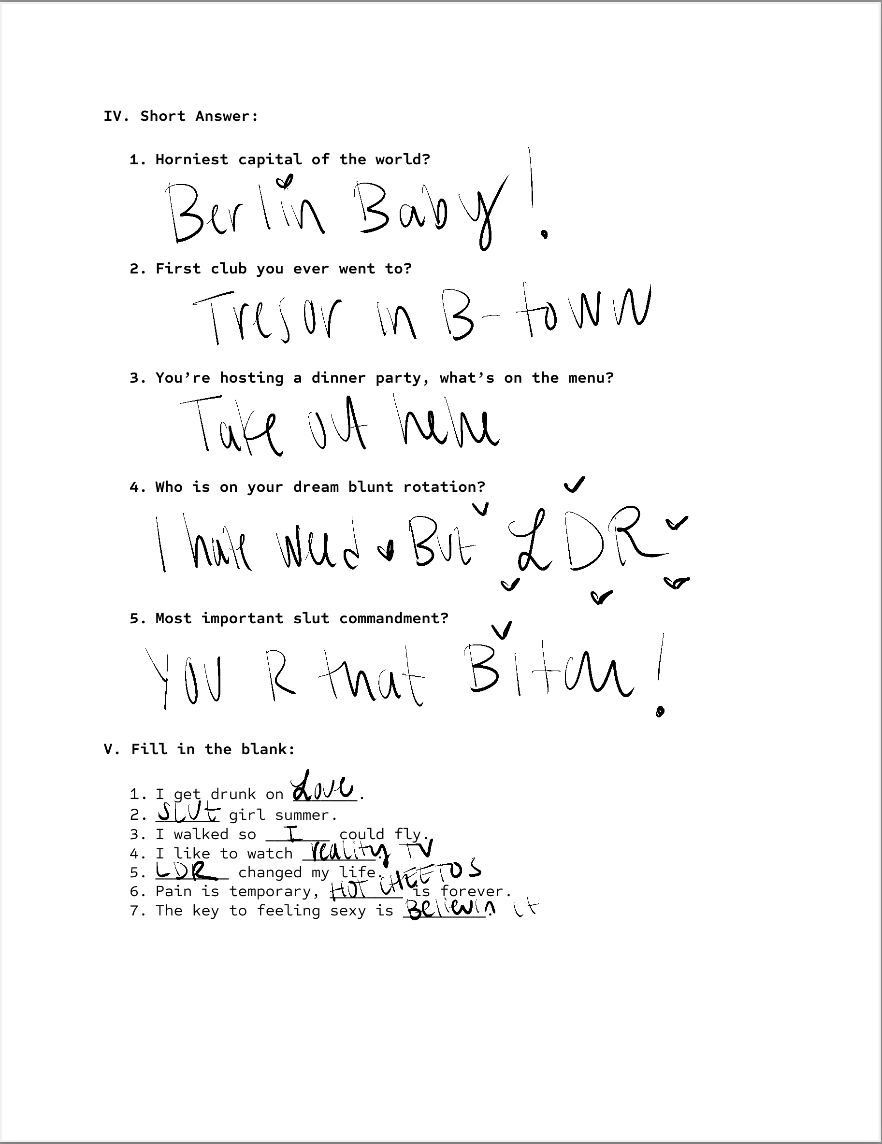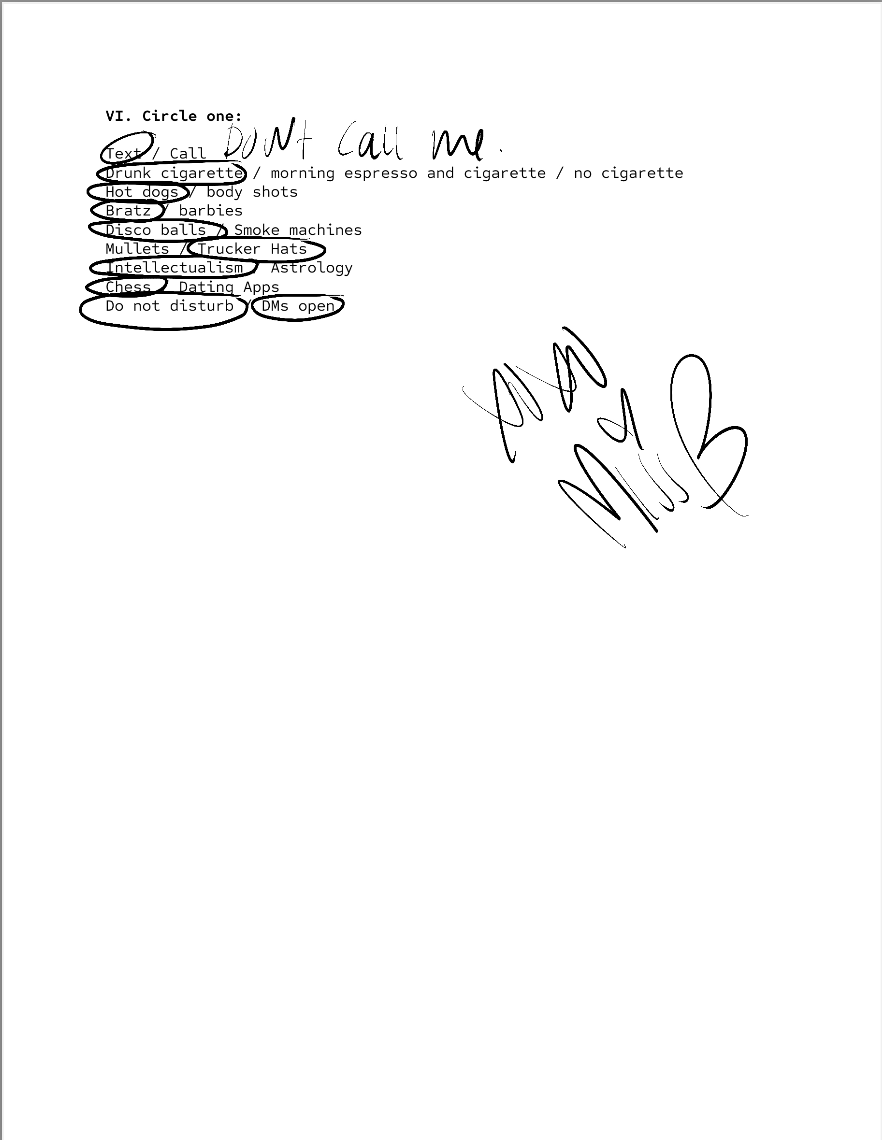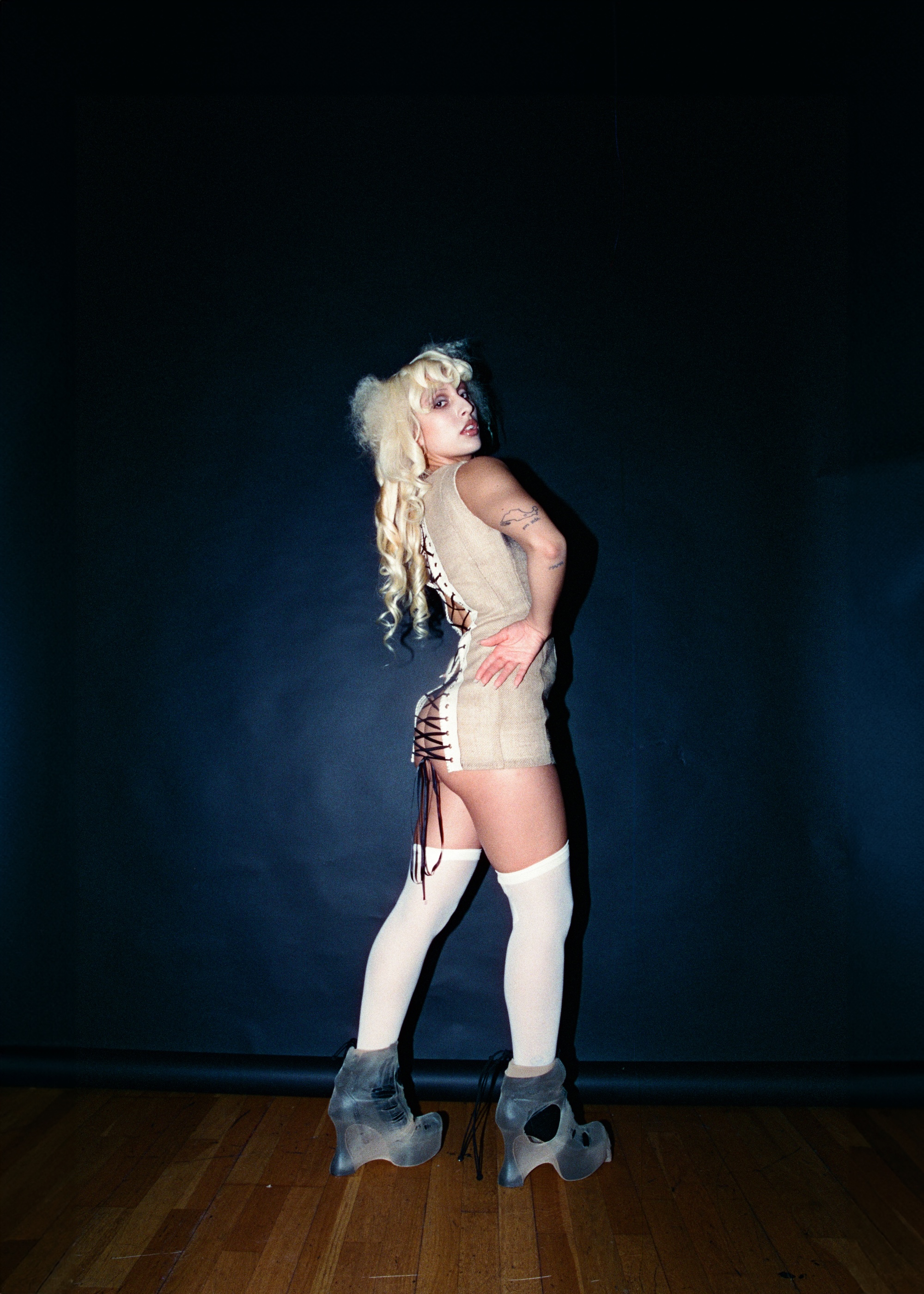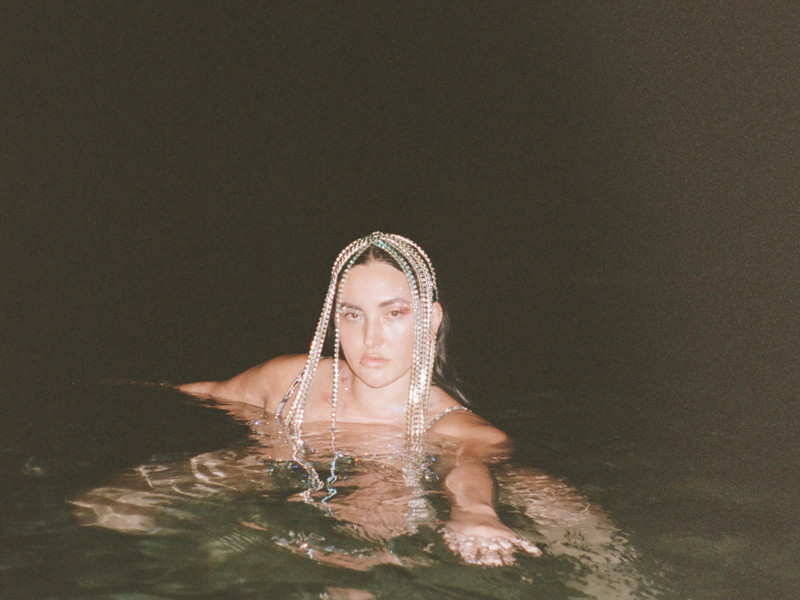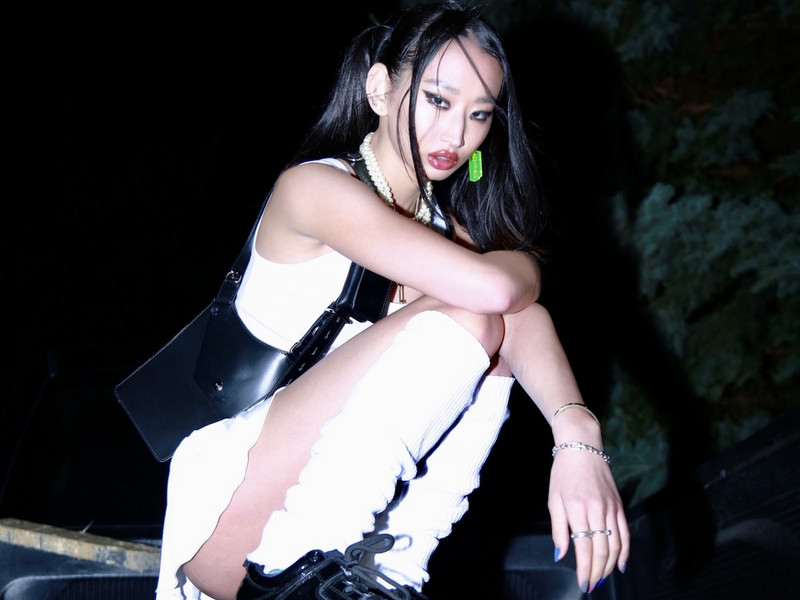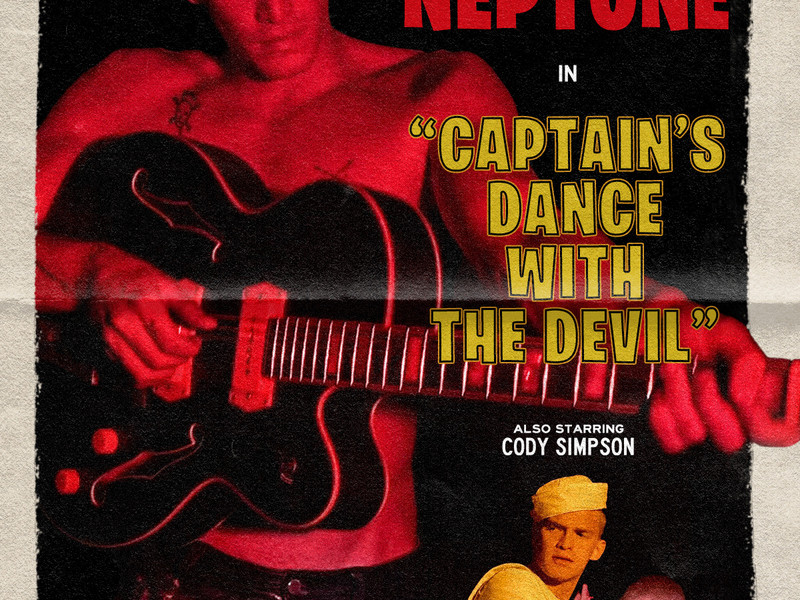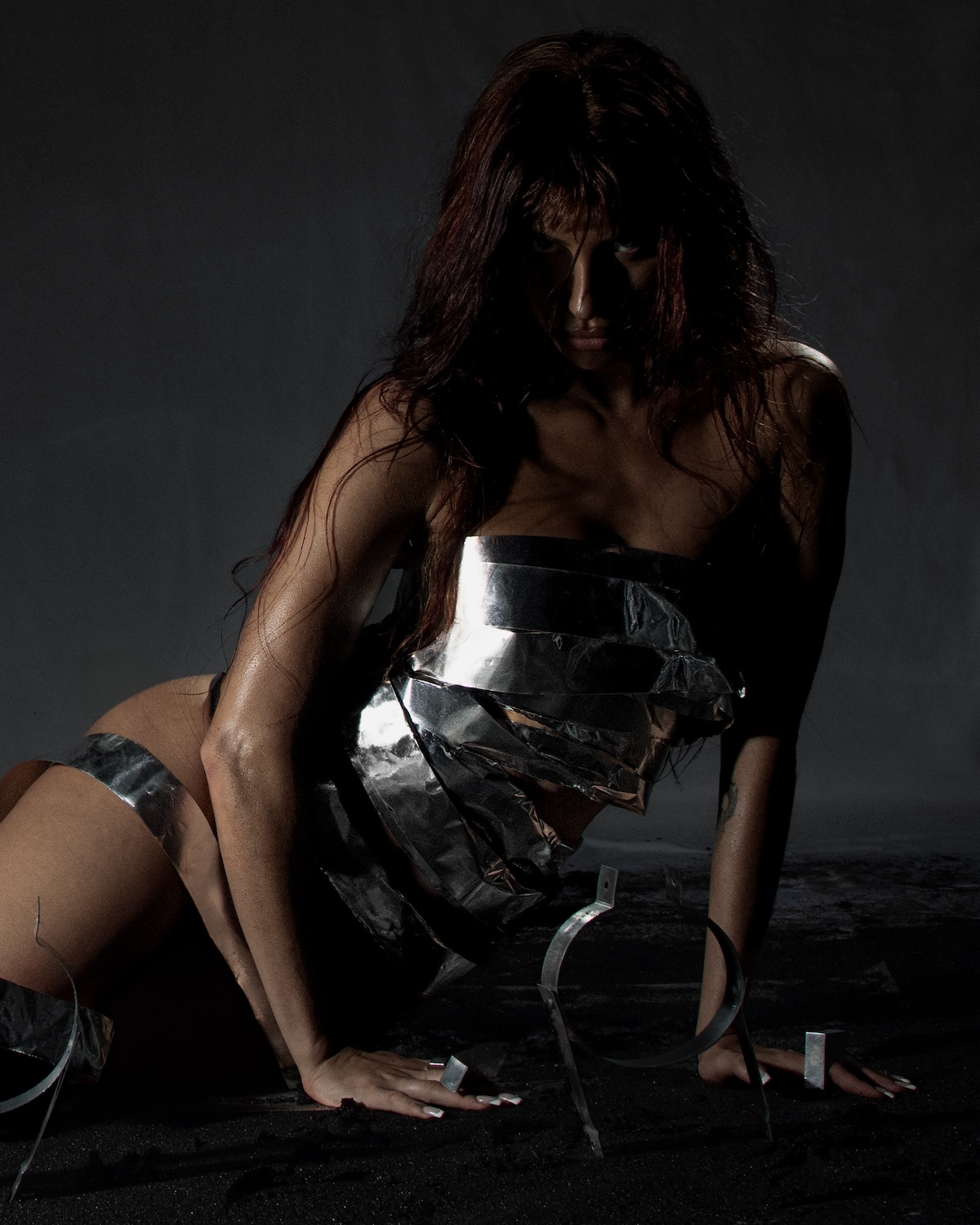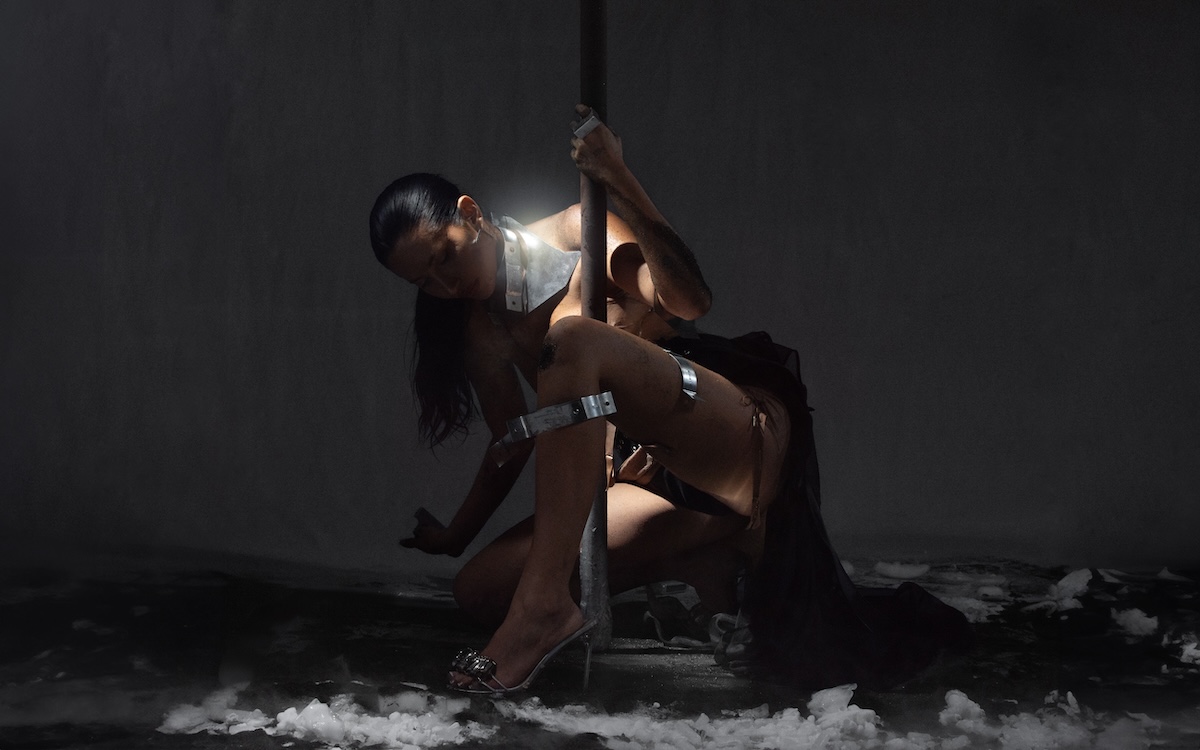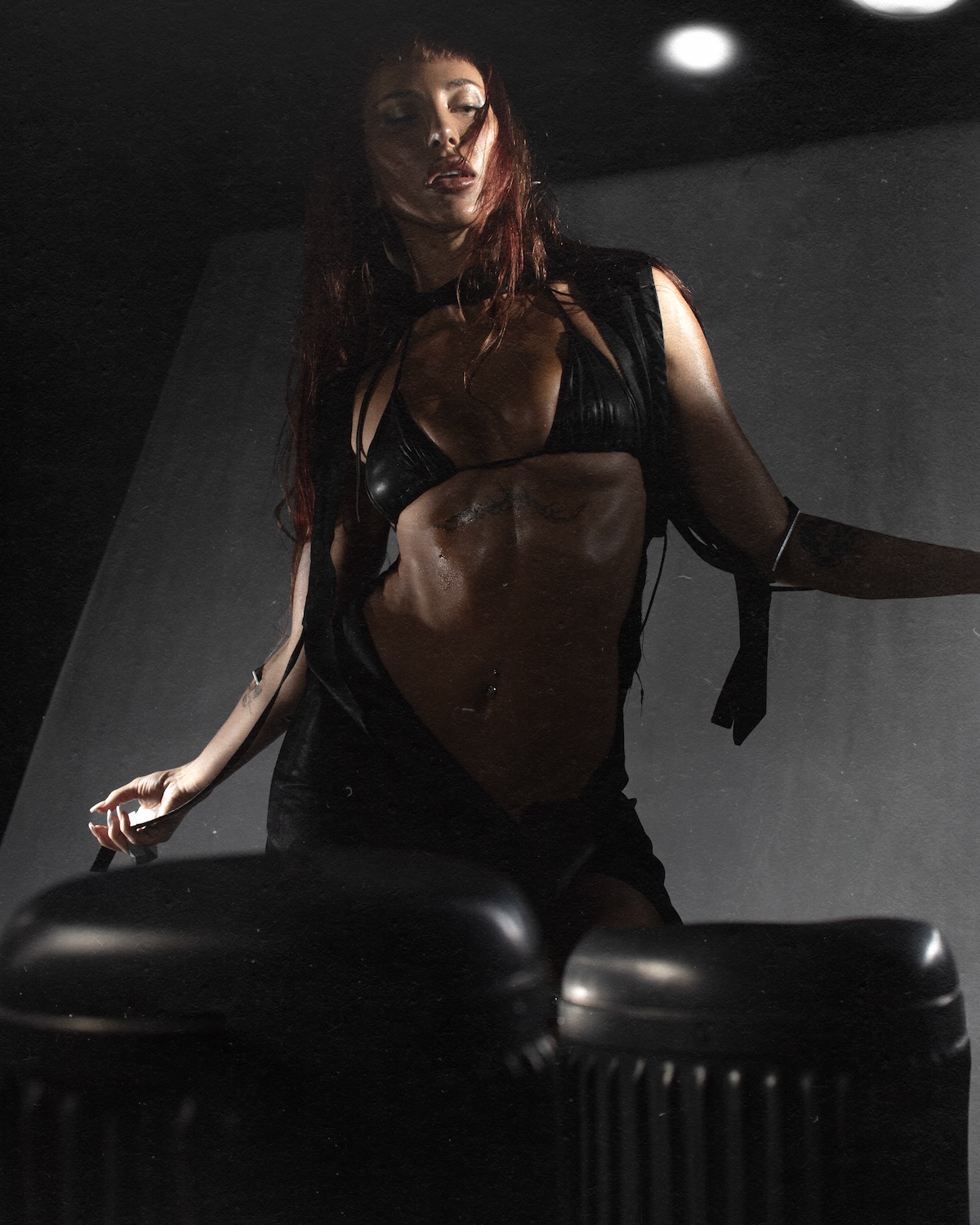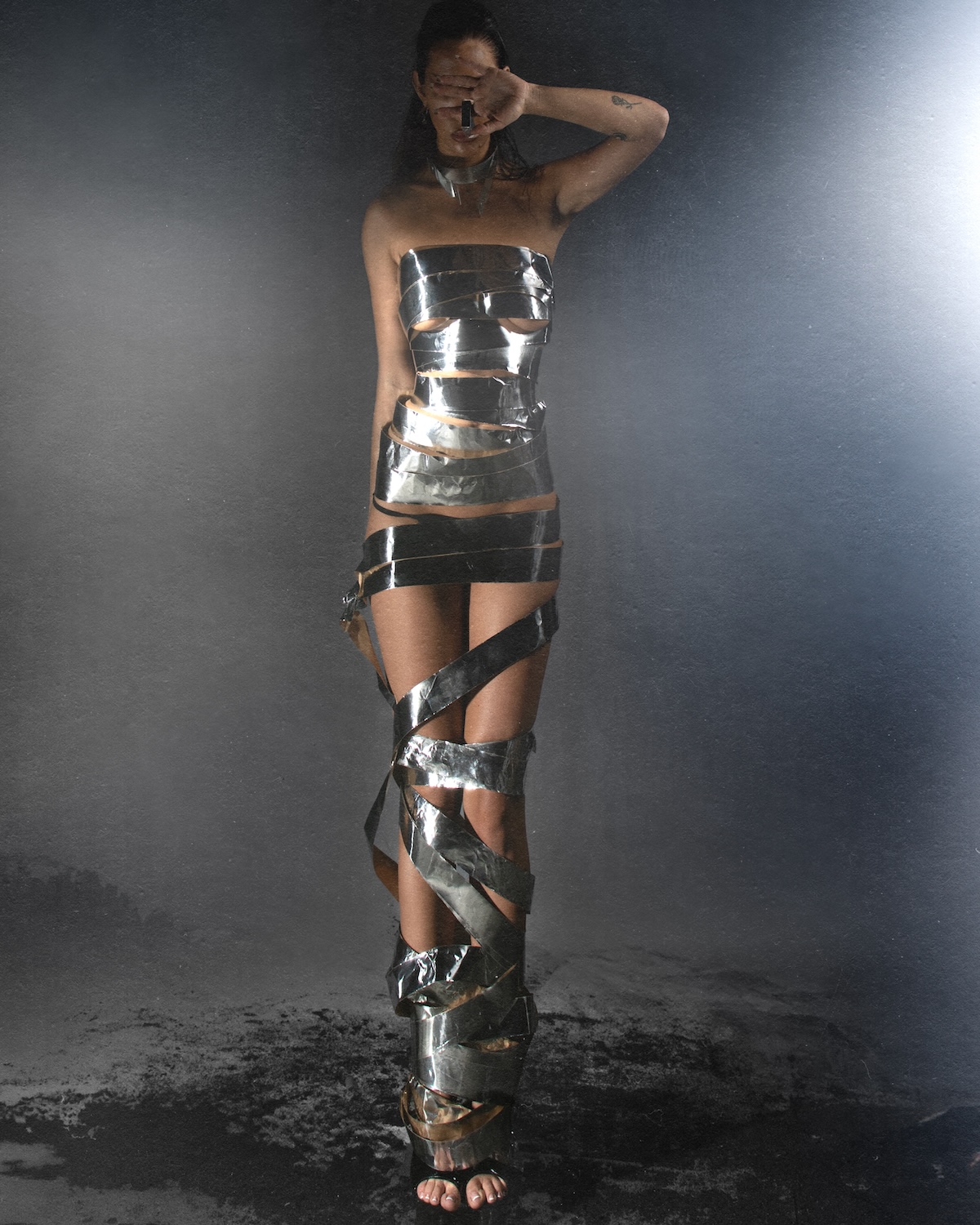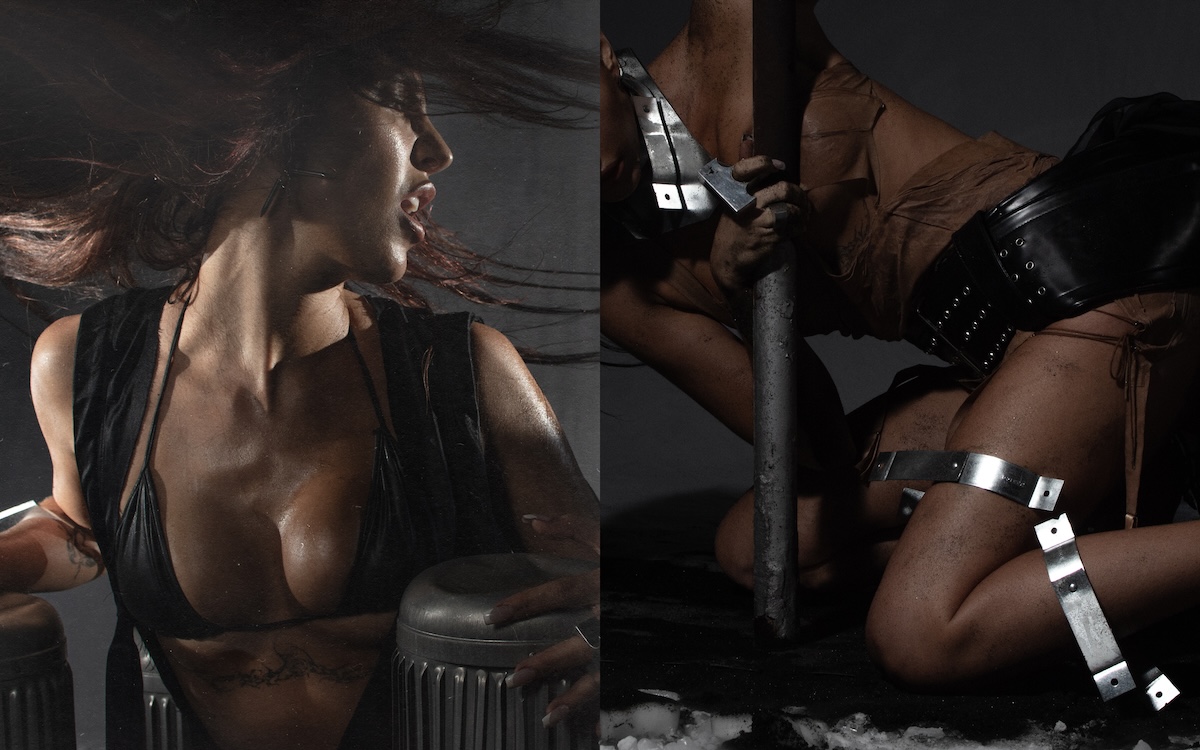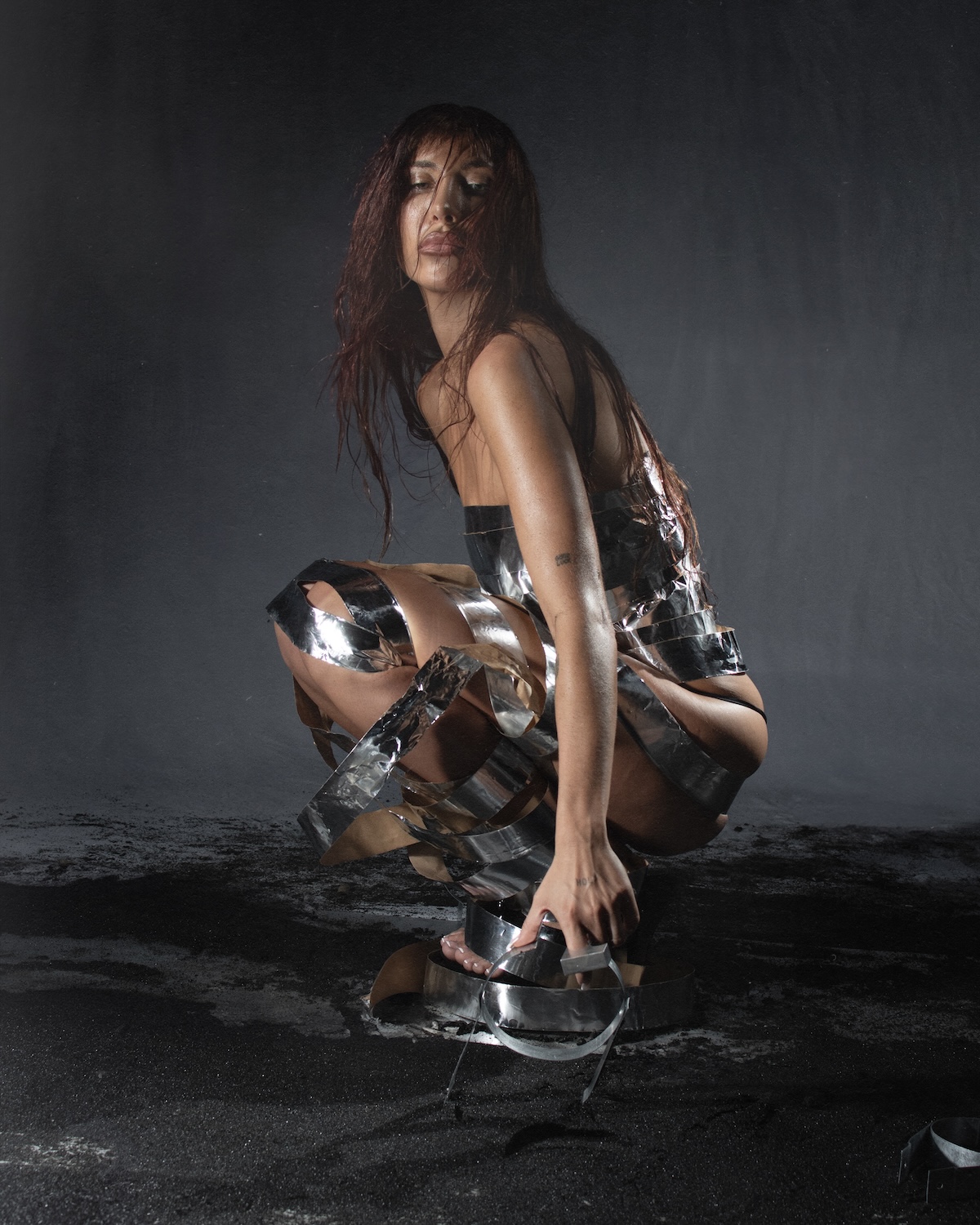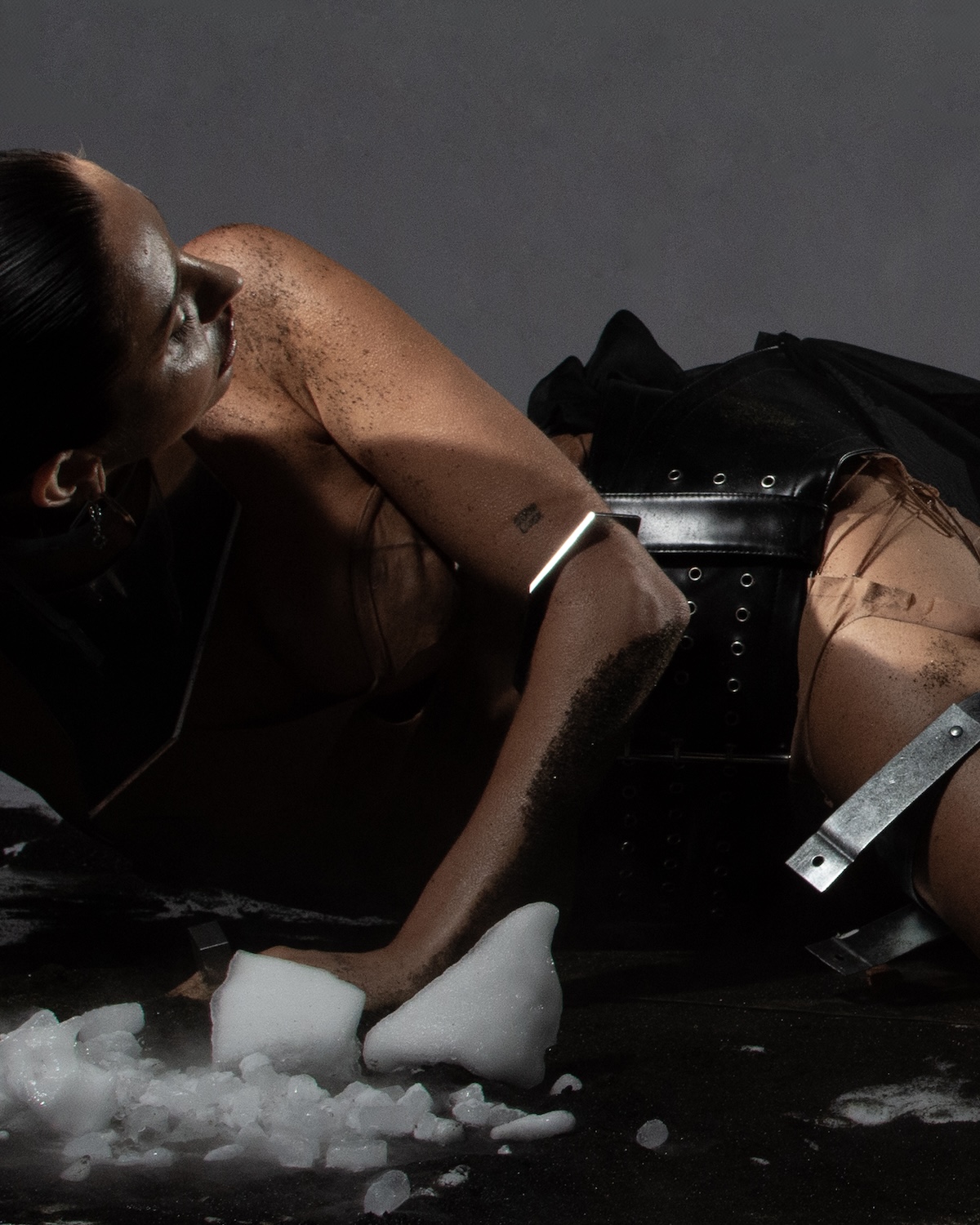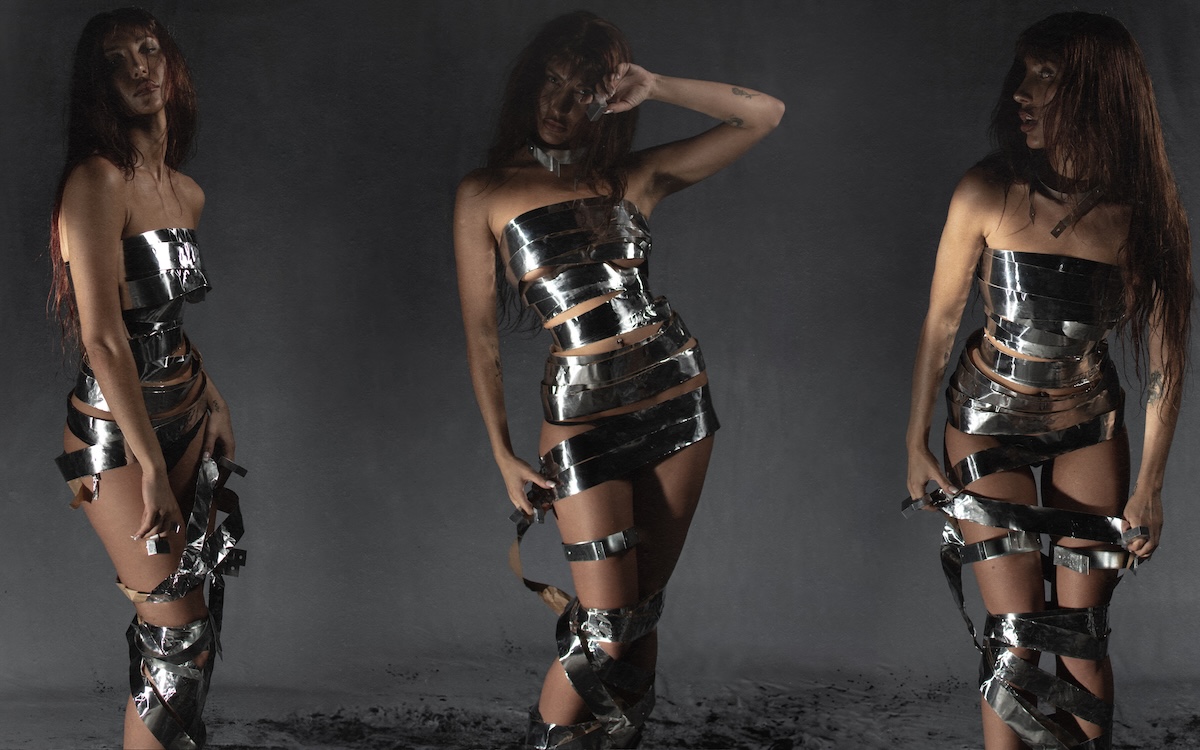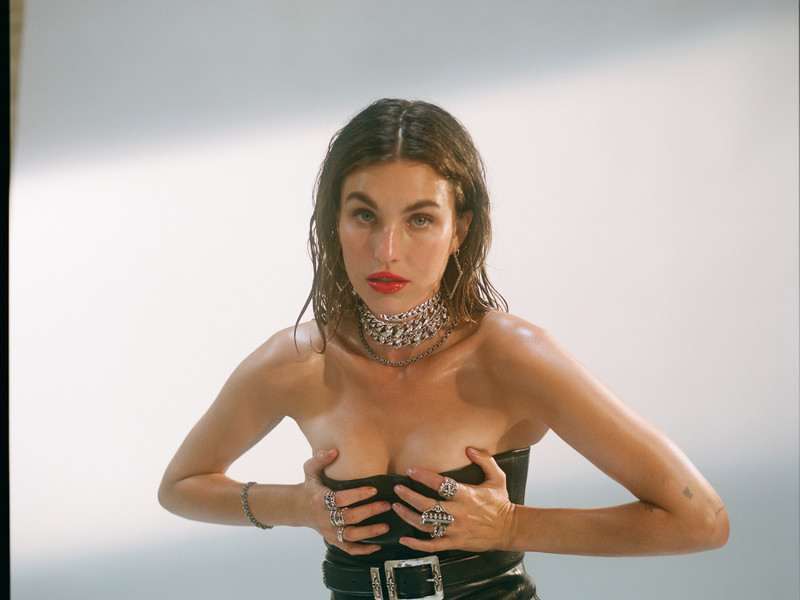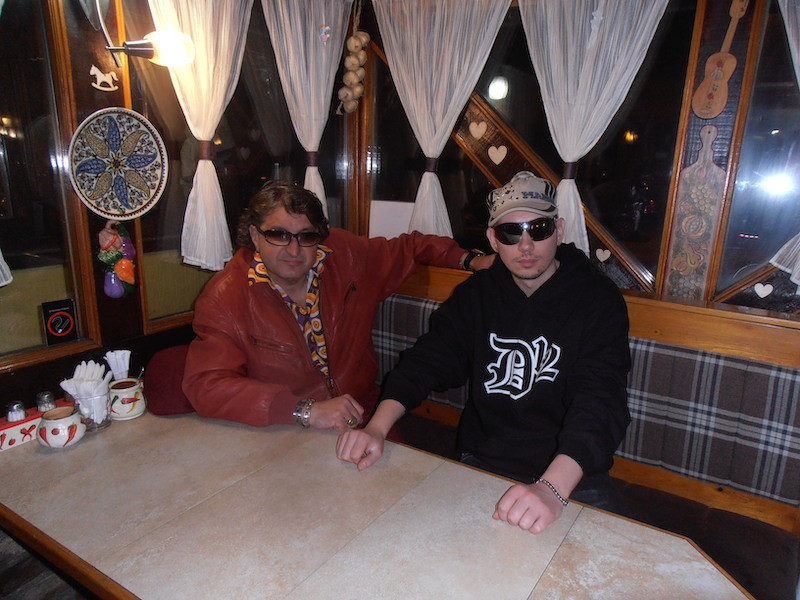Feedback Loops, Indonesian Action Films, and “Starchris” with Body Meat
Discussing influences with Taylor can feel almost pointless, as his interpretation of Middle Eastern music is as present as his inspiration from contemporaries in electronic music. His sound defies clear-cut influences — it's so many things at once, a formless, genreless exercise in noise. Is he rapping? Why is he moaning? What is that sound, and how does a human being create it? Starchris represents years of experimentation, a testament to Taylor's relentless work ethic, which extends beyond music into video game development. The video for his single "North Side" featured footage from a game he coded, highlighting the parallels between creating a universe in music and in games. The technicolor glitches and star-collapsing synths of Starchris reveal Taylor's fascination with an auditory plot, communicated through the rise and fall of crashing riffs and distortion.
The record recalls the ecstasy of Ecco2k's singing, the explosive production of JPEGMAFIA, and the masters of the quiet-loud dynamic, like PJ Harvey in her timeless '90s records. Body Meat’s choice to start the album with "A Tone In The Dark" and then transition into "The Mad Hatter" is like watching a neutron star collapse in The Matrix. It’s disconcerting — it shouldn’t work, but it absolutely does. The album is immediate, cratering upon impact.
I first saw Body Meat open for Injury Reserve on tour in 2019. His dynamism and stage presence were a breath of fresh air; Taylor was elastic on stage, creating sounds with his drum pads that I didn’t know were possible to create live. It was one of the last shows I saw before the pandemic hit, leaving an indelible mark on me. Five years later, it was great to catch up with Body Meat and hear what he’s been working on since 2019’s Truck Music and 2021’s Year Of The Orc. Read our full conversation below.
Tal Kamara— Do you have performance anxiety and if so, have you always had it?
Body Meat— Yes, big time. I think it gets worse with time for me, maybe because of how much harder I'm making music to play. Things are just getting more complex, so there's more to worry about and when I was younger I didn't care, but now as I get older, I really understand more. More things are precious about a performance to me that I want to get right and I want to convey to somebody. I will be playing to eight people and my hands will literally be shaking, but once I start playing, everything's okay.
Dude, when I saw you live, your drumming was the most visceral, palpable thing about the performance at first because it was like, “Oh shit, okay, this guy's doing all this shit live.” Now that you’re performing with someone else also on drums, how does it feel to cede control of that aspect of the performance to somebody else?
It is really nice, because while I do like playing the drums and singing and all of the stuff, there is a point in the balance that needs to be struck when you start to feel like a one man band. There's just not very much to look at, and people really enjoy watching a relationship on stage. It adds another layer to the show. You don't know what's going to happen.
The audience is inherently aware that there is more chance for improvisation in the music because there's two people.
Yeah, exactly. It creates this anticipation where you're like, Whoa, how does this person even know where the beat is? You get to look over and hear me do a thing on a keyboard and sing, and then I also have a drum. When people get to watch two drummers they're like, who's where? That's my favorite kind of performance to watch.
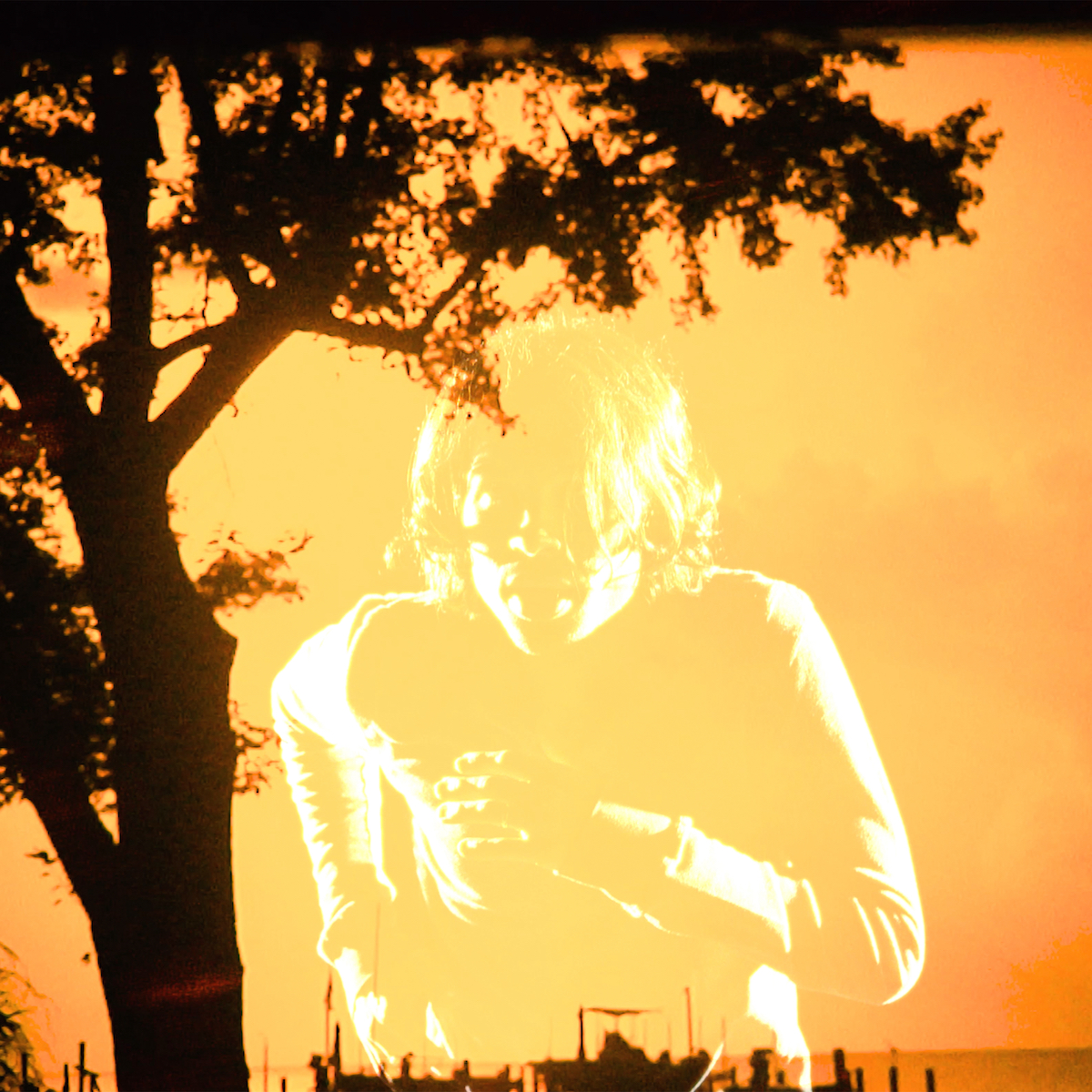
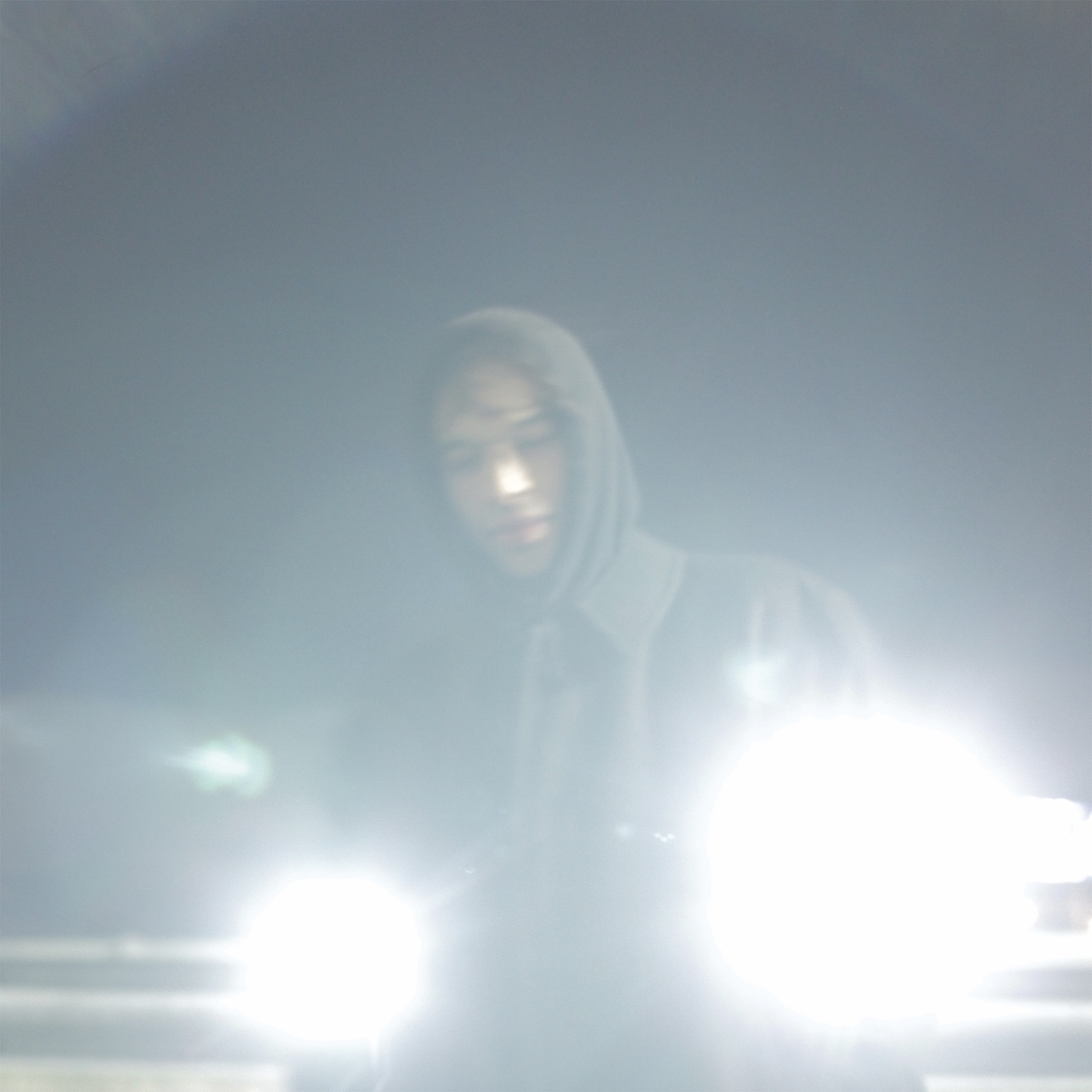
What are your memories of touring with Injury Reserve and Slauson Malone in 2019? I remember that being a pretty incredible tour and a really wonderful moment, a culmination of a lot of things.
It was really good. I was really nervous, because I'd never been on a tour that big. I'd never had my project in front of that many people before. But getting to meet them the first night in Austin at dinner was great. It was like we all already knew each other for a long time. We could all feel ourselves becoming really good friends on the tour. When I was leaving and Jasper (Slauson Malone) was heading to the West Coast, it became this moment of, yeah we all need to see eachother again.
I remember you and Slauson Malone in particular being a crazy double feature right before Injury Reserve because the contrast in styles of the music was so stark. Obviously, there are shared sensibilities, but Jasper was doing his performance art and his hypnagogic pop/hip-hop thing, screaming and such, which I remember caught a lot of people off guard. Then you came in, and I recall a lot of people being blown away by your raw talent and your musical ability. I can tell by listening to Injury Reserve that you and Jasper had an effect on them, and I think their sound shifted after that tour. How do you feel about the fact that your music might influence those who you respect and listen to? Is that a weird feeling?
That's the best compliment you can receive – when someone is affected by something that you do, especially someone that's close to you. If someone is your friend and then they like what you do so much that they're like, “Hey, I learned this from your music”, that’s such a beautiful thing. I get that way about friends of mine, where I incorporate things I admire about bands grew up with or friends that I have, and even Injury Reserve, like how Parker [Corey] produces and his sound palettes.
What lessons have you learned from live performances and when you’re back in the studio after that? Is there a feedback loop?
It's kind of like play testing the music. I used that to the fullest degree with this record. In 2022, I was in a place where I was in kind of a standstill with it [the record]. I had some songs, but I didn't really know where to take them, and I had really good moments of music, but I didn't really have a cohesive vision for it. Then I got asked to do the Injury Reserve Europe tour, and I was playing with the idea of it being just me with a keyboard and a table, a kind of classic electronic musician setup. I thought, how about I just turn this keyboard into a CDJ with effects and then just run everything through tracks and sing and affect the song as I go? At the first show we played, I did the set with this idea of just throwing an effect rack on the whole master and affecting it with knobs, and immediately people were into it. I was able to destroy the music whenever I wanted and then bring it back whenever I wanted, and I was like, literally, this is how I make the record.
Wow, that's so sick.
Yeah, that was a good question. That is literally how the record started finally solidifying. I had this insane plugin called Scrubby, and it just takes all the frequencies and turns 'em into water. It literally sounds like scrubbing with reverb, and I would just twist it until it was so loud and I could see my meter just clipping. Luckily we were in Europe, so no one cared.
I've heard you say that you put a ton of time into this record. Is there a start date?
Yeah, that was probably mid 2021, and I was trying to make something that just sounds different than what I'd done before, but has everything I've learned in it all at once. People were making really minimalist stuff where it was one really good sound or something, and I get the merit of it. It is very sophisticated, you can look really smart if you have a really clean kick with one sound and then you have a vocal and there's only three sounds in there, like the “less is more” principle. But I was like, I want to see how much I can throw at the wall. Now it's cool because everyone's really maximal and it feels kind of nice.
I was going to ask you about that, because it feels like we've reached a point where hyper pop has reached the mainstream really hard, like super, super hard, and you've been making music tinged with hyper pop. I feel like you were ahead of your time a bit. Obviously there's a ton of other elements, like there's IDM, there's a ton of electronic influences, club influences, but ultimately do you feel audiences are more ready for your sound and your music than maybe they were before?
It has been cool to see the correlation between things. I have a lot of friends that will send me things that come out. One of my friends sent me the Brat album. I didn't hear it at first, and my friend Derek had sent it to me and was like you do this on this record. And I was like, this is crazy, I kind of do, but I was obviously, her music sounds like a million dollars.
See, you said it, not me. I didn't say “Brat” Let the record show that I didn’t invoke the green album.
[Laughs] I was like, Oh shit, this is a thing. I didn't know this was going to be a thing.
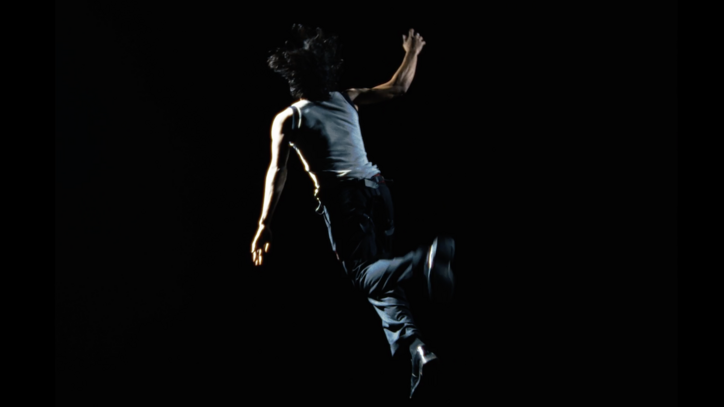
What is the ideal condition to listen to your music?
I'd say headphones or a car. I did a lot of listening in my car, even when I finished a mix or and I’d try to drive around and hear it around me. I was really focused on trying to keep dynamics in it, because I love the aspect of live music when it gets really quiet and really loud. So I think if you hear my music in headphones, you can hear the dynamic volume, when it needs to get quiet, when it needs to get loud, the peaks and valleys of things as opposed to listening to it on phone speaker. If that's all you have, I think I did a good enough job to where you can enjoy it that way.
Are you a perfectionist?
[Laughs] Yeah.
Do you believe in the 10,000 hour rule?
No!
So do you think artists need to put in the time to really hone their craft, or can anyone just get in the studio and make music?
I think if you're passionate about it, you can do whatever you want. You can make music from having eight hours of knowledge. I don't agree with that [10,000 rule]. I find myself feeling sometimes that I know too much, and it ruins a thing for me, as opposed to when I didn't know as much or when I first started Body Meat. I was more free and I feel like ideas came to me quicker, and honestly? I had more fun with it. I think it's a healthy balance of trying not to dwell on knowing too much because you can destroy the mystery of why you like something.
Gotcha. So where does the perfectionism come from then? Is it from anxiety or are you just a hard worker? Do you just have a strong work ethic or is it something instilled by family?
I think it's a little bit of all of those things. Growing up, I saw my parents work so hard and they didn't care if we didn't have very much money. They were scientists and they just wanted to make this machine, So I get a little bit from that, but then obviously the anxiety of caring what people think is part of it. Even though I'm making this stuff mostly for me, how people perceive it does affect me. Ultimately, the perfectionism comes from me trying to perfect the thing that I'm trying to say, and nothing more. I don't need people to hear my music and be like, “Wow, this person's a really good producer” or “These snares sound perfect”, or anything like that. It's more like, “I get what he’s trying to say. I understand.”
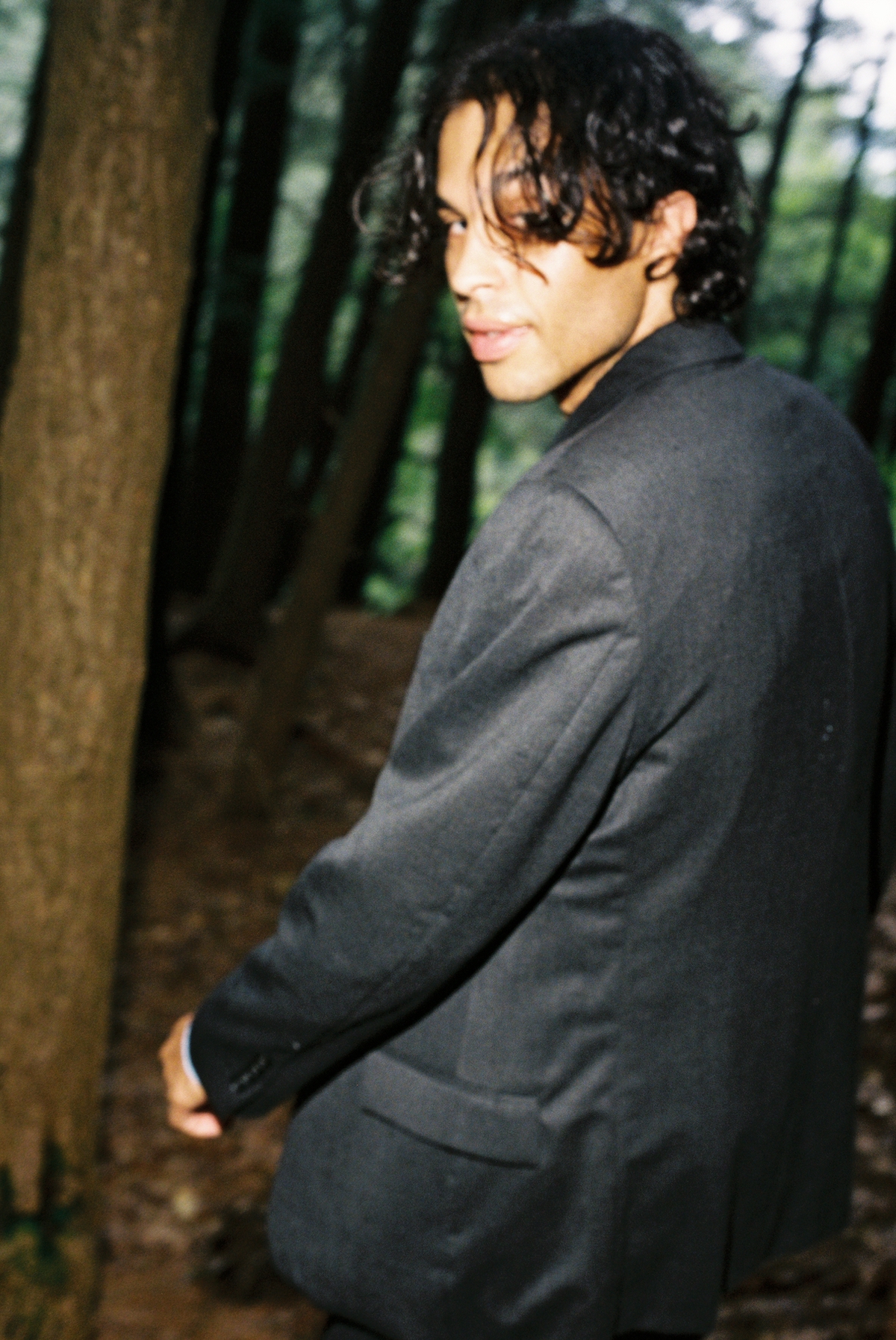
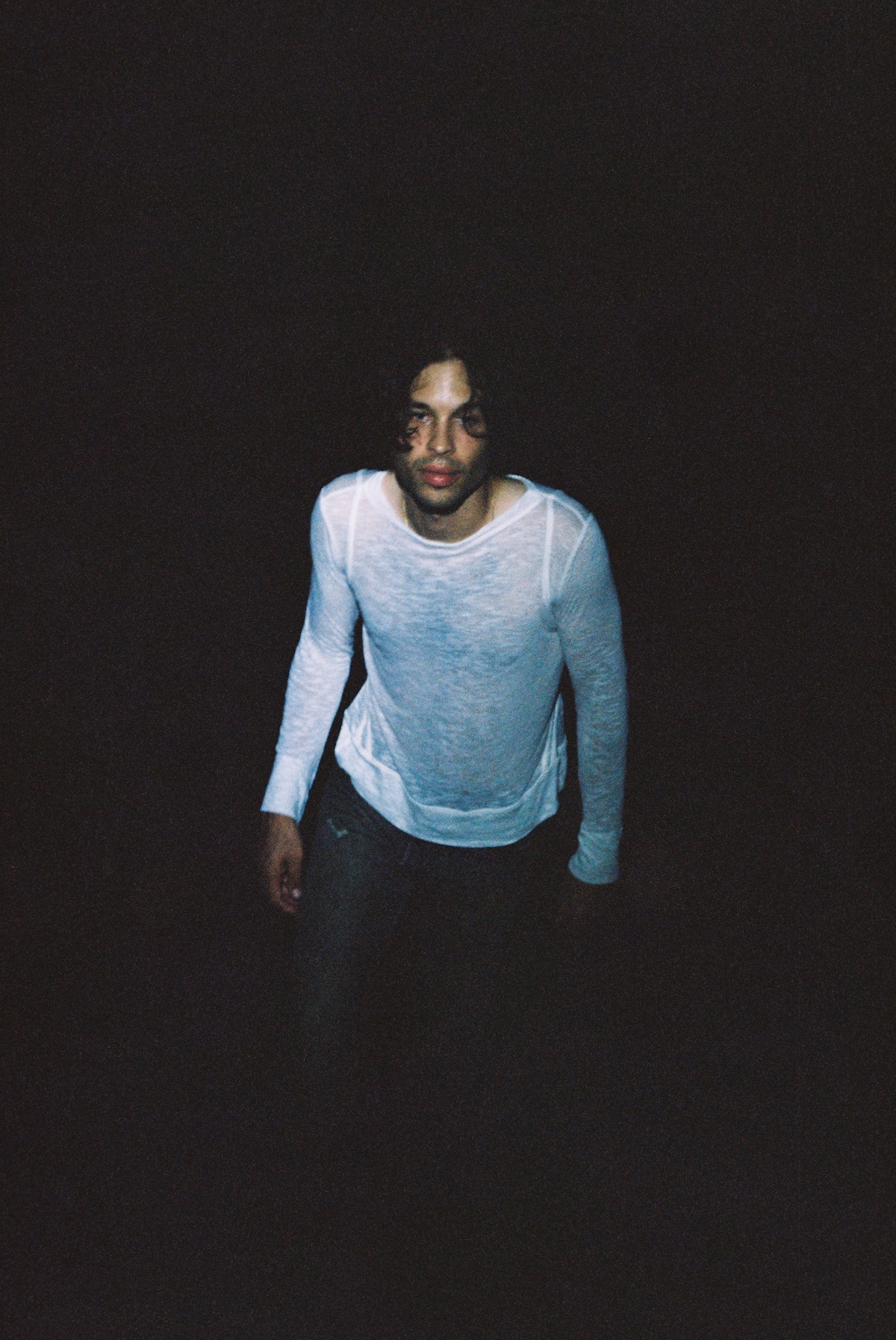
I want to talk about you centering yourself (Chris) in the album title (Starchris), which is interesting because obviously you go by a pseudonym on purpose and now you're choosing to invoke your own name.
I was trying to make a title that felt like it was the combination of everything that I had done musically and energy wise. Stars are built with all this energy condensed into one thing. And that was what the album was about, all of these forms of a person coming together and becoming this one entity. So “Starchris” just fit that. And I thought it was kind of funny putting my name on it! [Chuckles] I often will just name an album something mostly because it is kind of funny. Maybe it doesn't match the music perfectly, but this one kind of did. I remember when I thought of it, I was like, “oh yeah, this sounds like the music.”
Yeah, okay. That's really cool. You’re talking about the multiplicities you contain, and on the cover of the album there are several Chris’. Tell me a little bit about the choice of the album cover and how you went about getting it made.
I knew the album. I wanted it to be just these fragments of things — the feeling of fragments working together to create a whole, right? So I love that in rhythm. I love polyrhythms. That's a big thing on the record. It's two different meters working together. And so I love the idea of these four beings having to interact with each other throughout the album, working through the album together as a party almost in like an RPG sense. You need your healer, you need your tank, you need your damage dealer. So you have all four archetypes in the car.
Wow.
The actual concept of the image is from an action film called The Raid 2, and it's just inspired by the scene. I think it's an Indonesian film. It's not like a rip of the image, but there is a scene where they're in a car fight and the camera goes up over the car and you see the main character of the movie. There's two in the back seat, two in the front seat, and he's fighting everyone from the middle seat. The angle they had was so good, and what they're wearing was amazing. I was like, this is such a perfect idea for an image. I just kind of had that for months while writing the record. And then when it was time to make the album cover, I talked to my friend Dan (Daniel Brennan) and showed him the inspiration of that image, and I was like, I feel like we could do something with this. I knew I wanted it to be these fragments and these versions of me in the car together somehow.
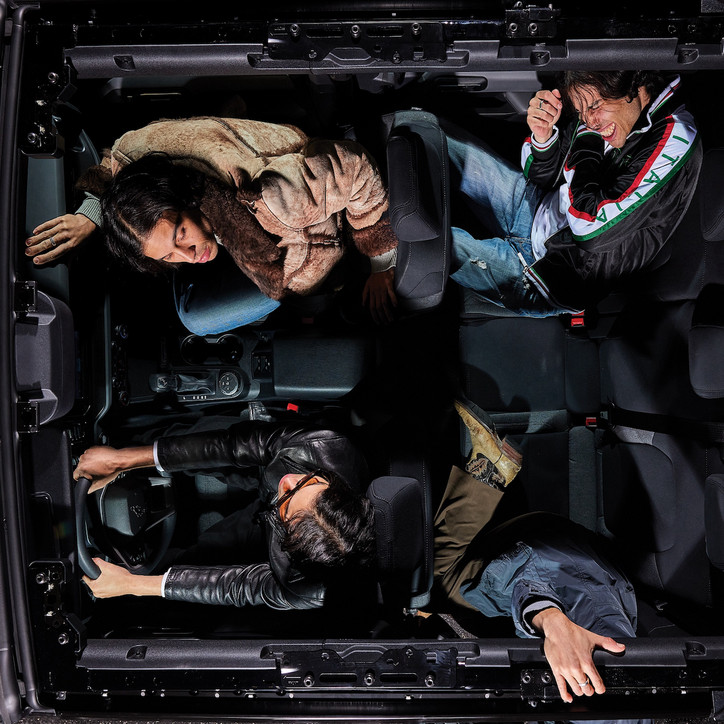
Starchris (2024)
Damn. I love that. Ok, so you mentioned RPGs, and I would be remiss to not mention your relationship with video games. Why do you love video games so much, and what made you want to make one?
You can do so much with them. You can really make someone feel something by presenting them with a game, presenting them with actual problems to solve, and then give them the resolution that you are trying to convey. Music feels really subjective. With games, people can play it and they can objectively kind of feel wrong, and you can play with that. You can mess with how a game feels and all that. But yeah, I love it. I like the storytelling aspect. I like the fact that you have to do every kind of art. It's the ultimate art form, I think.
All-encompassing.
It's everything. I love it. I love the challenge of it.
How did you sequence the record? It's a long album, much longer than anything you've put out before at almost an hour.
I feel good. I like that it's an hour. I wanted it to be like, this is a lot of music and this will take people a lot of time to deal with.
Is it meant to be listened to from start to finish?
Yeah, sequenced entirely. I like releasing singles, but I think in this context I really didn't want to because of that, but it's totally fine. I'm okay with how many singles have come out, but when I would hear some of the singles when they'd come out, I was like, ahh, I kind of hate this. It's not meant to be heard on its own like this at all. It feels really weird to hear “Focus” randomly on YouTube or something. You're supposed to hear the song before it.
Do you feel general anxiety about the state of the world, Chris?
Yes. This world is terrifying, and I think we're all trying to just find a bit of peace and safety in it, and I hope people can find that. I really do. Maybe the most important thing is that I hope that everyone gets rest. I hope everyone gets a little peace.
Do you have a morning or nighttime routine, and is it rigid?
I wake up at 7:00 AM. I just wake up, even if I'm not working, I'll wake up and start. I'll work on something. It's game development right now, but either way typically I just have to get up. I don't know why, but I quit smoking and I don't drink coffee right now, so that's weird. It's weird to just sit up and feel very still, but you sit up. I like it.
You're just on. You're just like, I'm ready.
Yeah. It's just like I wake up now and I'm like, okay, I guess I'll just get to work.

